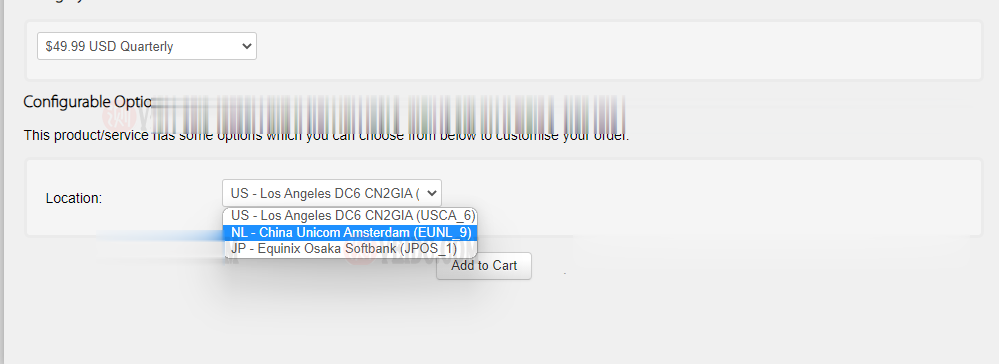examination75ff.com
75ff.com 时间:2021-03-17 阅读:()
1TheMediaandSocialProblemsDouglasKellner(http://www.
gseis.
ucla.
edu/faculty/kellner/)Themediaprovideaccesstoandconstructsocialproblemsforlargenumbersofaudiencesthroughouttheworldandinturnthemselveshavebecomeasocialprobleminviewoftheirmultipleandcomplexeffects,manynegative.
Themediahavebeenblamedbyawidespectrumoftheoristsandcriticsforpromotingviolenceandsexism,racism,homophobia,ageism,andotheroppressivesocialphenomena.
Socialproblemsconnectedwiththemediaalsoinvolveallegedlyharmfulmediainfluenceonchildrenandyouth;pornographyandthedegradationofwomenandsexuality;advertisingmanipulation;andthepromotionofexcessiveconsumerismandmaterialism.
Empiricalresearchonmediaeffectsintotheseareashasbeenmixedandhighlycontested.
Manystudieshaveaffirmedthatmediahavenegativesocialeffectsandhelpreproduceanumberofsocialproblems,whileotherstudiesassertskepticismtowardclaimsofnegativemediaeffectsorattempttoconfirmpositiveaspectsofthemedia.
1Empiricalstudiesareoftenfundedbyinstitutionswhohaveinterestsinescapingordeflectingcriticism,ortheyareconstrainedbybiasandlimitationsofvariouskinds.
Yetdominanttheoriesofthemediaareequallycontestedonwhetherthemediapromoteserioussocialproblemsorhaveamorebenigninfluence.
Conflictingtheoriesandresearchintomediaeffectshaveintensifieddebatesthroughouttheworldaboutmediaasasocialproblem.
ResearchintomediaeffectsandlinkingthemediawithsocialproblemsemergedforthemostpartintheUnitedStatesfollowingtheriseofbroadcastingandmassmediainthe1920sand1930s(Czitrom,1983),butnowthedebateandliteratureisinternationalinscope(McQuail,1994).
Likewise,inanincreasinglyinterconnectedworld,therearewidespreadconcernsaboutthemediaandnationalcultureandthewaysthatglobalmediainformpolitics,economics,andsocialandeverydaylife.
Somecriticalresearchhasfocusedonthepoliticaleconomyandownershipofthemedia,oftenperceivingcorporatecontrolofthemediabyeverfewercorporationsasamajorglobalsocialproblem.
Otherstudiesinthepastdecadeshaveresearchedtheimpactofglobalmediaonnationalcultures,attackingtheculturalimperialismofWesternmediaconglomeratesorcreepingAmericanizationofglobalmediaandconsumerculture(Schiller,1969;Tunstall,1977).
Otherscholarsseegrowingpluralizationofworldmediasourcesandhybridizationofglobalandlocalcultures,withanexpandingliteratureexploringthewaysthatglobalmediaartifactsarereceivedandusedinlocalcontexts(Lull,1995;Canclini,1995).
Thisliteratureisdividedintostudiesofhowspecificmediaorartifactshavepromotedoppressioninlocalornationalcontexts,orevenglobally,andliteraturethatcelebratesthedemocratizingorpluralizingeffectsofglobalmedia.
Inthisentry,Isortoutavastliteratureonthemediaandsocialproblems,delineatewhatIconsiderkeyissuesandpositions,andindicatesomeofthewaysinwhichthemediaconstructandaddresssocialproblemsandcanbeseenthemselvesasasocialproblem.
Thiswillinvolve,first,analysisofthemedia,morality,andviolence,followedbyasectiononthepoliticsofrepresentationanddebatesoverthemediaclass,race,gender,sexual,andother2formsofoppression.
Then,Itakeuptheliteratureonthemediaanddemocracy,settingoutthepositionthatcorporateownershipandthepoliticaleconomyofthemediaconstituteasocialprobleminwhichcorporatemediaunderminedemocracy.
IexplorethislatterissuewithastudyofthemediaintheUnitedStatesoverthepasttwodecadesandhowcorporatemediahavefailedtoaddresscrucialsocialproblemsandhavethemselvesbecomeasocialproblem.
Finally,IdiscusshowtheInternetandnewmediacanprovidealternativestothecorporatemediaandprovidesomehopethatmoredemocraticmediaandsocietiescanbeproducedthatwilladdresssocialproblemsbeingignoredandintensifiedinthecurrenteraofcorporateandconservativehegemony.
TheMedia,Morality,andViolenceDuringthe1930s,theFrankfurtschoolcoinedtheterm"cultureindustry"tosignifytheprocessoftheindustrializationofmass-producedcultureandthecommercialimperativesthatdrovethesystem.
Thecriticaltheoristsanalyzedallmass-mediatedculturalartifactswithinthecontextofindustrialproduction,inwhichthecommoditiesofthecultureindustriesexhibitedthesamefeaturesasotherproductsofmassproduction:commodification,standardization,andmassification.
Thecultureindustrieshadthespecificfunction,however,ofprovidingideologicallegitimationoftheexistingcapitalistsocietiesandofintegratingindividualsintoitswayoflife(seeHorkheimerandAdorno,1972andKellner,1989).
Intheirtheoriesofthecultureindustriesandcritiquesofmassculture,theFrankfurtSchoolwereamongthefirstsocialtheoristsperceivingtheimportanceofthemediainthereproductionofcontemporarysocieties.
Intheirview,themediastandinthecenterofleisureactivity,areimportantagentsofsocialization,mediatorsofpoliticalreality,andshouldthusbeseenasmajorinstitutionsofcontemporarysocietieswithavarietyofeconomic,political,culturalandsocialeffects.
ThemediaarealsoperceivedasasocialproblemfortheFrankfurtSchoolinthattheyproduceamasssocietythatunderminesindividuality,democracy,andthesalutaryaspectsofhighculture.
TheclassicalviewofAdornoandHorkheimeronthemediaandmoralitywasthatthemediawerepurveyorsofbourgeoisandcapitalistvalueswhichpromotedthedominantideology,constructingviewersaspassiveconsumersofdominantnormsandconsumerbehavior.
OnAdornoandHorkheimer'smodeloftheculturalindustries,thestandardizedformatsofmass-producedmediagenresimposedpredictableexperiencesonaudiencesandhelpedproduceahomogenizedmassconsciousnessandsociety.
Ascommunicationstudiesbeganemerginginthe1930sand1940s,andastheoristsnotedthepowerofpropagandainWorldWarTwo,awiderangeofstudiesbeganappearingofthesocialeffectsofthemedia,promotingdebateoverthemediaandsocialproblemsandthemediaasasocialproblem.
Someofthefirstempiricalstudiesoftheeffectsoffilm,forinstance,criticizedthecinemaforpromotingimmorality,juveniledelinquency,andviolence.
TheMotionPictureResearchCouncilfundedthePaynefoundationtoundertakedetailedempiricalstudiesoftheimpactoffilmsoneverydaylife3andsocialbehavior.
TenvolumeswereeventuallypublishedandabookOurMovie-MadeChildren(Forman,1933)sensationalizedthePaynefindings,triggeringdebatesaboutthemediaandhowtheyinflamedsocialproblemslikecrime,youthproblems,sexualpromiscuity,andwhatwasperceivedasundesirablesocialbehavior(seeJowett,1976).
Thefirstmodelsofmasscommunicationbuiltonstudiesofpropaganda,filminfluence,advertising,andothermediastudies,assumingadirectandpowerfulinfluenceofmediaontheaudience.
Thismodelbecameknownasthe"bullet,"or"hypodermic,"theory,assertingthatthemediadirectlyshapethoughtandbehaviorandthusinducesocialproblemslikecrimeandviolence,rebellioussocialbehavior,mindlessconsumption,ormasspoliticalbehavior(seeLasswell,1927andthepresentationofthemodelinDeFleurandBall-Rokeach,1989).
ThepropagandaroleofthemediainWorldWarOneandTwo,growingconcernaboutthesocialrolesoffilm,advertising,andothermediapromoteddebateabouthowthemediawerebecomingasocialproblemthatwereintensifyingawiderangeofotherproblemsrangingfromcrimetogrowingteenpregnancies.
ThismodelofpowerfulanddirectmediaeffectswasquestionedinThePeople'sChoice(1944)byPaulLazarsfeldandhiscolleaguesBernardBerelsonandHazelGauletwhoinastudyoftheinfluenceofthemediaonvoter'sdeterminedthatitwas"opinionleaders"whoweretheprimaryinfluenceinvotingbehaviorwhilethemediaexerteda"secondary"influence.
LazersfeldandElihuKatzexpandedthismodelinPersonalInfluence:ThePartPlayedbyPeopleintheFlowofMassCommunication(1955).
Their"two-stepflow"modelclaimedthatopinionleadersaretheprimaryinfluenceindeterminingconsumerandpoliticalchoice,aswellasattitudesandvalues.
Thismodelholdsthatthemediadonothavedirectinfluenceonbehavior,butaremediatedbyprimarygroupsandpersonalinfluence,thusineffectdenyingthatthemediathemselvesareasocialproblembutmerelyreportonissuesandreinforcebehavioralreadydominantinasociety.
2Yetbothconservativesandleft-liberalmediacriticscontinuedtoarguethatthemediahadharmfulsocialeffectsandpromotedsocialproblems.
Growingjuveniledelinquencyinthe1950swasblamedoncomicbooks(seeWertham1996)androckandrollwasbroadlyattackedforhavingawiderangeofsubversiveeffects(Grossberg,1992).
Inthe1960s,manydifferentstudiesofthemediaandviolenceappearedthroughouttheworldinresponsetogrowingviolenceinsocietyandmorepermissivepublicmediathatincreasedrepresentationsofimplicitsexandviolenceinfilm,television,andothermedia.
Onthemediaandviolence,someliteraturecontinuedtoassumethatviolentrepresentationsinthemediadirectlycausesocialproblems.
Amoresophisticatedsocialecologyapproachtoviolenceandthemedia,however,wasdevelopedbyGeorgeGerberandhiscolleaguesintheAnnenbergSchoolofcommunication.
Gerbner'sgrouphasstudiedthe"culturalenvironment"ofviolenceinthemedia,trackingincreasesinrepresentationsofviolenceanddelineating"messagesystems"thatdepictwhoexercisesviolence,whoisthevictim,andwhatmessagesareassociatedwithmediaviolence.
A"cultivationanalysis"studieseffectsofviolenceandconcludesthatheavyconsumersofmediaviolenceexhibita"meanworldsyndrome"witheffectsthatrangefromdepressiontofearfulindividuals4votingforrightwinglawandorderpoliticians,totheexhibitionofviolentbehavior(Gerbner2003).
AnotherapproachtoviolenceandthemediaisfoundintheworkofEysenckandNias(1978)whoarguethatrecurrentrepresentationsofviolenceinthemediadesensitiveaudiencestoviolentbehaviorandactions.
TheexpansionofyouthviolencethroughouttheworldandmediaexploitationofsensationalinstancesofteenkillingsintheU.
S.
,Britain,France,Germanyandelsewhereintensifiedfocusonmediaandviolenceandthewaysthatrapmusic,videoandcomputergames,televisionandfilm,andothertypesofyouthculturehavepromotedviolence.
3Inadditiontoseeingthemediaasasocialproblembecauseofgrowingmediaandsocietalviolence,fromthe1960stothepresent,left-liberalandconservativemediacriticscoalescedinarguingthatmainstreammediapromoteexcessiveconsumerismandcommodification.
ThisviewisarguedinsociologicaltermsintheworkofDanielBellwhoassertsinTheCulturalContradictionsofCapitalism(1978)thatasensate-hedonisticcultureexhibitedinpopularmediaandpromotedbycapitalistcorporationswasunderminingcoretraditionalvaluesandproducinganincreasingamoralsociety.
Bellcalledforareturntotraditionandreligiontocounterthissocialtrendthatsawmediacultureasunderminingmorality,theworkethic,andtraditionalvalues.
InAmusingOurselvesToDeath(1986),NeilPostmanarguedthatpopularmediaculturewasbecomeamajorforceofsocializationandwassubvertingtraditionalliteracyskills,thusunderminingeducation.
Postmancriticizedthenegativesocialeffectsofthemediaandcalledforeducatorsandcitizenstointensifycritiqueofthemedia.
Extollingthevirtuesofbookcultureandliteracy,Postmancalledforeducationalreformtocounterthenefariouseffectsofmediaandconsumerculture.
Indeed,thereisbynowalongtraditionofstudiesthathavediscussedchildrenandmedialiketelevision(seeLuke,1990).
CriticslikePostman(1986)arguethatexcessiveTV-viewingstuntscognitivegrowth,createsshortenedattentionspans,andhabituatesyouthtofragmented,segmented,andimagisticculturalexperiencesandthatthustelevisionandotherelectronicmediaareasocialproblemforchildren.
Defendersstresstheeducationalbenefitsofsometelevision,suggestthatitismerelyharmlessentertainment,orarguethataudiencesconstructtheirownmeaningsfrompopularmedia(Fiske,1989and1993).
Negativedepictionsofthemediaandconsumerism,youthhedonism,excessivematerialism,andgrowingviolencewerecontestedbyBritishculturalstudiesthatclaimedthatthemediawerebeingscapegoatedforawiderangeofsocialproblems.
InPolicingtheCrisis(Halletal,1978),StuartHallandcolleaguesattheBirminghamCentreforContemporaryCulturalStudiesanalyzedwhattheytooktobeamedia-induced"moralpanic"aboutmuggingandyouthviolence.
TheBirminghamgrouparguedforanactiveaudiencethatwasabletocriticallydissectandmakeuseofmediamaterial,arguingagainstthemediamanipulationperspective.
RootedinaclassicarticlebyStuartHallon"Encoding/Decoding"(1980),Britishculturalstudiesbeganstudyinghowdifferentgroups5readtelevisionnews,magazines,engagedinconsumption,andmadeuseofabroadrangeofmedia.
InEverydayTelevision:NationwideCharlotteBrunsdonandDavidMorley(1978)studiedhowdifferenceaudiencesconsumedTVnews;IenAng(1984)andKatzandinvestigatedhowvaryingaudiencesinHolland,Israel,andelsewhereconsumedandmadeuseoftheU.
S.
TV-seriesDallas;andJohnFiske(1989,1993)wroteaseriesofbookscelebratingtheactiveaudienceandconsumerinawiderangeofdomainsbyaudiencesthroughouttheworld.
YetcriticsworkingwithinBritishculturalstudies,individualsinawiderangeofsocialmovements,andacademicsfromavarietyoffieldsandpositionsbegancriticizingthemediafromthe1960sandtothepresentforpromotingsexism,racism,homophobia,andotheroppressivesocialphenomena.
Therewasintensefocusonthepoliticsofrepresentation,discriminatingbetweennegativeandpositiverepresentationsofmajorsocialgroupsandharmfulandbeneficialmediaeffects,debatesthatcoalescedundertherubricofthepoliticsofrepresentation.
TheMediaandthePoliticsofRepresentationThegroundbreakingworkofcriticalmediatheoristsliketheFrankfurtSchool,BritishCulturalStudies,andFrenchstructuralismandpoststructuralismrevealedthatcultureisasocialconstruct,intrinsicallylinkedtothevicissitudesofthesocialandhistoricallyspecificmilieuinwhichitisconceivedandthatgender,race,class,sexuality,andotherdimensionsofsociallifearesociallyconstructedinmediarepresentations(seeDurhamandKellner,2001).
Mediaandculturalstudiesengagedincriticalinterrogationsofthepoliticsofrepresentation,whichdrewuponfeministapproachesandmulticulturaltheoriestofullyanalyzethefunctionsofgender,class,race,ethnicity,nationality,sexualpreferenceandsooninthemedia.
Thesocialdimensionsofmediaconstructionsareperceivedbyculturalstudiesasbeingvitallyconstitutiveofaudienceswhoappropriateandusetexts.
WhileearlierBritishculturalstudiesengagedtheprogressiveandoppositionalpotentialofworkingclassandthenyouthculture,underthepressureofthesocialmovementsofthe1960sand1970s,manyadoptedafeministdimension,paidgreaterattentiontorace,ethnicityandnationality,andconcentratedonsexuality.
Duringthisperiod,assorteddiscoursesofrace,gender,sex,nationalityandsooncirculatedinresponsetosocialstrugglesandmovementsandweretakenupinculturalstudiestocriticallyenragethepoliticsofrepresentation.
4Anincreasinglycomplex,culturallyhybridanddiasporicglobalcultureandnetworkedsocietycallsforsophisticatedunderstandingsoftheinterplayofrepresentations,politics,andtheformsofmedia,andthereadingsinthissectionweregroundbreakinginofferingnewperspectivesontheseproblematics.
LauraMulvey'sessay"Visualpleasureandnarrativecinema"(1992)contendsthatthecinematicapparatuslegitimatesandperpetuatesapatriarchalorderinwhichtheobjectofthelookisfemaleandthesubjectofthelookismale.
Atthetimeofitspublication,Mulvey'sarticleofferedaradicaltoolforanalyzingtherepresentationofsexualdifferenceanddesireincinema.
Thearticlewastakingupbyarangeoffeministandothercriticswhoattackedsexismandtheobjectificationofwomenandsexualityinthemediaandtheways6thatthecamerainducesspectatorstoassumecertainsubjectpositions.
YetDoane(1982)arguedthatfocusonthemalegazedefocusedattentiononthefemalespectatorandofferedanexcessivelymonolithicmodelofthecinematicapparatus,andRichardDyer(1982)discussedthecomplexwaysthatmalespectatorsandgaysnegotiatedtheviewingofvisualrepresentations.
Manygayandlesbiantheorists,however,decriedthewaysthatmediarepresentationspromotedhomophobiabypresentingnegativerepresentationsofgaysexuality.
LarryGross'"Outofthemainstream:Sexualminoritiesandthemassmedia"(1989)arguesthatcorporatemediaculturedefinesandframessexualityinwaysthatmarginalizegayandlesbians,and"symbolicallyannihilate"theirlives.
Stereotypicdepictionoflesbiansandgaymenas"abnormal,andthesuppressionofpositiveoreven'unexceptional'portrayals,servetomaintainandpolicetheboundariesofthemoralorder"(1989:136)inGross'view.
Hearguesforalternativerepresentations--acallthathastoacertaindegreebeenheardandansweredbygayandlesbianmediaproducerscomingtoprominenceinthecontemporaryera.
Avarietyofcriticsofcolorhaveengagedracistrepresentationsinfilm,television,andotherdomainsofmediaculture.
HermanGray(1995),forexample,scrutinizestherelatedtrajectoryofblackrepresentationonnetworktelevisioninananalysisthattakesintoaccountthestructuresandconventionsofthemediumaswellasthesociopoliticalconditionsoftextualproduction.
Gray'sexaminationofraceandrepresentationhighlightsthearticulationsbetweencontemporary/recentrepresentationsofblacksandmuchearlierdepictions.
Hearguesthat"ourcontemporarymomentcontinuestobeshapeddiscursivelybyrepresentationsofraceandethnicitythatbeganintheformativeyearsoftelevision"(1992:73).
Contemporaryculturalproductionisstillindialoguewiththeseearliestmoments,hewrites,andheisawareoftheregressiveaswellastheprogressiveaspectsofthisengagement.
Importantly,Grayidentifiescertainturningpointsintelevision'srepresentationofblackness,situatingthese"signalmoments"withintheculturalandpoliticalcontextsinwhichtheyweregenerated.
Hisanalysisbringsustoaconfrontationwiththepossibilitiesofmassculturaltextsengagingthepoliticsofdifferenceinacomplexandmeaningfulway.
Manycriticsemphasizedtheimportanceofconnectingrepresentationsofgender,race,class,sexuality,andothersubjectpositionstodisclosehowthemediapresentsociallyderogatoryrepresentationsofsubordinategroups.
bellhooks(1992)hasbeenamongthefirstandmostprolificAfrican-Americanfeministscholarstocallattentiontotheinterlockingsofrace,class,genderandadditionalmarkersofidentityintheconstitutionofsubjectivity.
Earlyinhercareershechallengedfeministstorecognizeandconfrontthewaysinwhichraceandclassinscribewomen's(andmen's)experiences.
In"EatingtheOther"(1992),hooksexploresculturalconstructionsofthe"Other"asanobjectofdesire,tyingsuchpositioningtoconsumerismandcommodificationaswellastoissuesofracialdominationandsubordination.
Cautioningagainsttheseductivenessofcelebrating"Otherness,"hooksusesvariousmediaculturalartifacts--clothingcatalogs,films,rapmusic--todebateissuesofculturalappropriationversusculturalappreciation,andtouncoverthepersonalandpoliticalcrosscurrentsatworkinmassmediarepresentation.
7Criticsalsohavestressedtheneedforincorporatingperspectivesandvoicesofindividualsfromavarietyofglobalsitesindebatingissuesofcontemporarymediaandsociety.
ChandraMohanty(1991)raisesissuesofnation,identityandpowerinheroften-citedessay,"ThroughWesterneyes.
"Mohantychallengestheappropriationandcodingof"ThirdWorldwomen"inWesternfeministscholarship,remindingusthattheThirdWorldismorecomplex,diverseandmultiformthandominantconstructionsallow.
EventhesupposedlyoppositionaldiscoursesoffeminismoftenendupbeingreductiveandahistoricalintermsofwhatMohantycalls"ThirdWorlddifference.
"Mohanty,likehooks,posesanimportantchallengetothenotionthatthecategoryof"woman"canbeconsideredwithoutacknowledgingclass,ethnicandraciallocations.
Herobjectionisto"theelision.
.
.
between'women'asadiscursivelyconstructedgroupand'women'asmaterialsubjectsoftheirownhistory"(1991:56).
"Women"inthisdiscourseareconstructedasobjects,victims,anddependent,ratherthanassubjectsofstruggleandresistanceinconcretehistoricalconditions.
Mediarepresentationsthusoftenconstructwomenandtheirsocialproblemsasvictimsandobjects,andmainstreammediararelypresentpositiverepresentationsofwomen'smovementsorcollectiveformsofstruggle,ratherfocusingonwomenasindividualexamplesofspecificsocialproblemslikerapeordomesticviolence.
Inarguingforhistoricallyandculturallygroundedunderstandingsofwomen'smultipleexperiencesandresistances,Mohantypresentsimportanttheoreticalandmethodologicalissuesthatchallengehegemoniesandasymmetriesofpowerincriticalculturalstudiesaswellasinmainstreamscholarship.
Mohanty'sworkalsoemphasizesthatsocialandpoliticalchangeshaveimplicationsfarbeyondasinglenation'sborders.
JustasMulvey,hooks,andGrayrecognizethemultilayeredandoverdeterminedcharacterofracialandgenderedoppressioninandbythemediainEnglish-speakingcountries,NéstorGarcíaCanclini(1995)grappleswiththetheoreticalconsequencesofthedecenteringofthenation-stateandtheimpactofpostmodern,postnationalandglobalculturesonLatinAmericanculturalproduction.
Intraditionalmediastudies,LatinAmerica's"ThirdWorld"statusofeconomicdependencyontheU.
S.
ledtotheoriesof"culturalimperialism"whereintheU.
S.
wasperceivedtohaveahegemonicandmonolithicallydestructiveimpactontheindigenousculturalproductionofitsneighborstothesouth.
Europeanscholarshavealsodissectedthetransnationalflowoftelevision,film,andothermediaonvariousnationalculturesandthewaysthatU.
S.
mediacorporationslikeDisneyandothertransnationalmediacorporationshavecometodominatemanynationalcultures,tounderminelocalcultures,andtohaveawiderangeofharmfulculturalandmediaeffects(Mattelart,1979andMattelartandMattelart,1998).
YetLatinAmericanscholarsandothersalsoidentifyglobalizationasaforcecallingforfreshresearchperspectives;newtechnologiesandnewmarketshaveimpactsthatarenotsimplyoppressive,theyargue,butrathermakewayforlocalandregionalculturalproductionthathasprogressivepotential.
Inhis1995bookHybridCultures:StrategiesforEnteringandLeavingModernity,GarcíaCanclinidescribesthefar-reachingsynthesesofmodernandtraditionalcultureinLatinAmerica,andthewaythatpostmodernglobalculture8iscomplexifyingthesituation.
Intheessay"Hybridcultures,obliquepowers,"whilestilltakingintoaccounttheexerciseofpowerbetween"First"and"Third"worldnations,García-CancliniarguesthatthemassmediahavenoterasedtraditionalLatinAmericanformsofculturalexpression;ratherheclaimsthattheyhavecontributedtoaculturalreconfigurationthathasdisplacedestablishedmodesofthinkingaboutculture.
Thistransformation,however,istiedtoothersocialshifts,includingtheexpansionofmetropolitanareas,thedecreaseincollectivepublicaction,andtheunfinishedprojectsofpoliticalchangeinmanyLatinAmericancountries.
Themassmediaconstituteanewkindofpublicsphereastheysimulatetheintegrationofadisintegratedsociety.
Contrastingmediaculturewithtraditionalsymbolsofmodernity--monumentsandmuseums--GarcíaCancliniengagesthecentralquestionofhowthenew,densenetworksofeconomicandideologicalcrossings,andthedeterritorializationsandhybriditiesbornofthem,reconfigurepowerrelations.
Focusonthepoliticsofrepresentationthuscallsattentiontothefactthatcultureisproducedwithinrelationshipsofdominationandsubordinationandtendstoreproduceorresistexistingstructuresofpower.
Suchaperspectivealsoprovidestoolsforculturalstudieswherebythecriticcandenounceaspectsofmediaformsandartifactsthatreproduceclass,gender,racialanddiversemodesofdominationandpositivelyvalorizeaspectsthatsubvertexistingtypesofdomination,ordepictresistanceandmovementsagainstthem.
Issuesofthepoliticsofrepresentationandviolenceandthemediaintersectintheimpassioneddebatesoverpornography.
Foraschooloffeminismandculturalconservatives,pornographyandviolenceagainstwomenareoneofthemostproblematicaspectsofmediaculture.
Anti-pornfeministsarguethatpornographyobjectifieswomen,thattheindustrydangerouslyexploitsthem,andthatpornographypromotesviolenceagainstwomenanddebasedsexuality.
Pro-sexfeministsanddefendersofpornography,bycontrast,arguethepornographyexhibitsatabooedarrayofsexuality,provokesfantasyandawakensdesire,andcanbeusedbyconsumersingratifyingway.
5Hence,whilethereiswidespreadagreementthatthemediaconstructsandprovidesaccesstosocialproblemsandthatitsrepresentationsareanimportantpartofthesocialworld,thereisheateddebateoverwhetherthemediahavepositiveornegativesocialeffects.
Manycriticsarguethatone-sidedproorconpositionstendedtobesimplisticandreductiveandthatcontextualanalysisneedstobemadeonspecificmediaeffectsofcertaintechnologiesorartifactsonspecificaudiences(Kellner,1995and2003).
Thispositionalsoassertsthatingeneralmediahavecontradictoryeffectsandthatinmanycasesitisimpossibletoaccuratelydiscernordistinguishpositiveornegativefeaturesthatareofteninterconnected.
Likewise,thereareequallyheateddebatesoverwhetherthemediapromoteorinhibitdemocracy.
InthefollowingsectionsIwillcontextualizethedebateovermediaanddemocracyintermsofthenatureandvicissitudesofdemocracyinaglobalworld.
Thisinvolvesengagingthechangingpatternsofpoliticaleconomyofthemedia,expandingrolesofthemediainpoliticallife,riseoftechnologiesliketheInternet,andthewaysthatglobal9corporatemediaconstituteamajorsocialproblemthatalso,paradoxically,pointstopossiblesolutions.
TheMediaandDemocracyInclassicaldemocratictheory,thepressandthenthebroadcastmediaweretoprovideinformation,ideas,anddebateconcerningissuesofpublicsignificanceinordertopromoteademocraticpublicsphere(Keane,1991).
Thedualdemocraticfunctionsofthepressweretoprovideacheckagainstexcessivepowerandtoinformthepeopleconcerningthemajorissuesofpublicinterestinordertoallowtheirknowledgeableparticipationinpubliclife.
Afreepresswasvitallynecessarytomaintainademocraticsocietyanditisoftenclaimedbychampionsofdemocracythatfreedomofthepressisoneofthefeaturesthatdefinesthesuperiorityofdemocraticsocietiesovercompetingsocialsystems.
Thisconceptofafreepresswasalsoextendedtothebroadcastmediathatwereassignedaseriesofdemocraticresponsibilities.
IncountrieslikeBritainwhichdevelopedapublicservicemodelofbroadcasting,radioandthentelevisionwasconsideredpartofthepublicsectorwithimportantdutiestoreproducethenationalcultureandprovideforumsofinformationanddebateforitscitizens(Tracey,1998).
EvenintheUnitedStates,whereaprivateindustrymodelofbroadcastingcametodominate,intheFederalCommunicationsActof1934andsubsequentlegislationandcourtdecisionsbroadcastingwastoservethe"publicinterest,convenience,andnecessity,"ascribingcertaindemocraticfunctionstothemedia,untiltheoverthrowofthesestricturesinthe1980sand1990s.
6InWesternconceptsofdemocracy,broadcastingwasthusinitiallyconceivedasapublicutility,withtheairwavesestablishedaspartofthepublicdomain,subjecttoregulationbythegovernmenttoassurethatbroadcastingwouldmeetitsdemocraticresponsibilities.
Yetduringthetwocenturiesofthedemocraticrevolutions,politicalandcorporatepowersoftencametodominatethemediaandoverthepasttwodecadesforcesofderegulationhaveexpandedprivatecorporatecontrolofdominantmedia.
Duringtheeraoflaissez-fairederegulationpursuedinEnglandbyThatcherandhersuccessorsandintheU.
S.
bytheReaganadministrationandsubsequentregimes,muchofthebroadcastingregulatoryapparatuswasdismantledandgiantcorporationstookoverkeybroadcastmedia,orbecameincreasinglypowerful.
InEuropeandthenthroughouttheworld,startingwiththeThatcheradministrationinthelate1970s,countryaftercountryderegulateditsmedia,allowedaproliferationofprivatemediacorporationstocompetewithlargelystate-runorfinancedpublicbroadcasting,andthusincreasedtherangeofcorporatemediaorganizationswhichweakenedpublicservicebroadcasting,replacingitwithamarketmodel.
Intheeraofintensifyingglobalizationofthe1990sandintothenewmillennium,marketmodelsofbroadcastinggenerallyemergedasdominantthroughouttheworld,andaseriesofglobalmergerstookplacethatconsolidatedmediaownershipintoeverfewerhands.
Theresulthasbeenthatashrinkingnumberofgiantmediacorporationshavecontrolledawideningrangeofmediaincorporateconglomeratesthatcontrolthepress,broadcasting,film,music,andotherformsofpopularentertainment,aswellasthemostaccessedInternetsites.
Mediahavebeenincreasinglyorganizedonabusinessmodel,and10competitionbetweenproliferatingcommercializedmediahaveprovidedanimpetustoreplacingnewswithentertainment,togenerateatabloidizationofnews,andtopursueprofitsandsensationalismratherthanpublicenlightenmentanddemocracy.
7Manyscholarshavesketchedoutandcriticizedtheconsequencesofmediaderegulationandthetriumphofamarketmodelfordemocracyoverthepastdecades(seenote6).
Expandedconcentrationofpowerinthehandsofcorporategroupswhocontrolpowerfulmediaconglomerateshaveintheviewofmanyundermineddemocracyandindicateincreasingcorporatecontrolofthemediaasaserioussocialproblem.
Ifcorporatemediapromotetheirowninterestsandagendas,theydonotservetheirdemocraticpurposesofinformingthepeople,allowingthepublictoengageininformedcivicdebate,andthustoparticipateindemocraticdialogueanddecision-making.
Moreover,ifthemediacorporationsutilizetheirpowerfulinstrumentsofcommunicationandinformationtoadvancetheirowncorporateinterestsandthoseofpoliticiansandpoliciesthattheyfavor,thenthemediahavelosttheirdemocraticfunctionsofservingtodebateissuesofsocio-politicalinterestandimportanceandtoserveasacriticalwatchdogagainstexcessivecorporategovernmentpowerandquestionablepolicies.
Moreover,themediadonotaddresssignificantsocialproblemsiftheseissuesthreatencorporatepowerordominanteconomicinterestsandbyunderminingdemocracyandnotengagingthesignificantsocialproblemsoftheera,thecorporatemediathemselvesbecomeasocialproblem,requiringademocraticmediapolitics.
Intheviewofmanymediacritics,oncethecorporatemediasurrenderedtheirresponsibilitiestoservethepublicandprovideaforumfordemocraticdebateandtoaddresssignificantissuesofcommonconcern,theyhavelargelypromotedthegrowthofcorporateandstatepowerandundermineddemocracy.
Thisresultsintheignoringofcrucialsocialproblemsbycorporatemediaandtheadvancingofcorporateagendas.
ForJurgenHabermas,theproblemwasrootedinthetransitionfromtheliberalpublicspheregroundedindemocraticpublicinstitutionstoacorporate-controlledmediaoflatecapitalism.
ForHabermas,duringtheeraoftheEnlightenmentand18thcenturydemocraticrevolutions,publicspheresemergedwhereindividualscoulddiscussanddebateissuesofcommonconcern.
InhisinfluentialstudyTheStructuralTransformationofthePublicSphere(1989[1962],Habermascontrastedvariousformsofanactive,participatorypublicsphereintheheroiceraofliberaldemocracywiththemoreprivatizedformsofspectatorpoliticsinabureaucraticindustrialsocietyinwhichthemediaandelitescontrolledthepublicsphere.
Thebookdelineatesthehistoricalgenesisofthebourgeoispublicsphere,followedbyanaccountofthestructuralchangeofthepublicsphereinthecontemporaryerawiththeriseofstatecapitalism,cultureindustries,andtheincreasinglypowerfulpositionsofeconomiccorporationsandbigbusinessinpubliclife.
Onthisaccount,bigeconomicandgovernmentalorganizationstookoverthepublicsphere,whilecitizensbecamecontenttobecomeprimarilyconsumersofgoods,services,politicaladministration,andspectacle.
Theclassicalliberalpublicspherewasalocationwherecriticismofthestateandexistingsocietycouldcirculate.
Theinstitutionsandsitesofthe18thcenturydemocraticpublicsphereincludednewspapers,journals,andapressindependentfromstateownership11andcontrol,coffeehouseswhereindividualsreadnewspapersandengagedinpoliticaldiscussion,literarysalonswhereideasandcriticismwereproduced,andpublicassemblieswhichwerethesitesofpoliticaloratoryanddebate.
Duringthe19thcentury,theworkingclassdevelopeditsownoppositionalpublicspheresinunionhalls,partycellsandmeetingplaces,saloons,andinstitutionsofworkingclassculture.
WiththeriseofSocialDemocracyandotherworkingclassmovementsinEuropeandtheUnitedStates,analternativepress,radicalculturalorganizations,andthestrike,sit-in,andpoliticalinsurrectionemergedassitesandformsofanoppositionalpublicsphere.
HabermasdescribesatransitionfromtheliberalpublicspherewhichoriginatedintheEnlightenmentandtheAmericanandFrenchrevolutionstoamedia-dominatedpublicsphereinthecurrenteraofwhathecalls"welfarestatecapitalismandmassdemocracy.
"ThishistoricaltransformationisgroundedinHorkheimerandAdorno'sanalysisofthecultureindustry(1972),inwhichgiantcorporationshavetakenoverthepublicsphereandtransformeditfromasphereofrationaldebateintooneofmanipulativeconsumptionandpassivity.
Inthistransformation,"publicopinion"shiftsfromrationalconsensusemergingfromdebate,discussion,andreflectiontothemanufacturedopinionofpollsandpoliticalandmediaelites.
Rationaldebateandconsensushavethusbeenreplacedbymanageddiscussionandmanipulationbythemachinationsofadvertisingandpoliticalconsultingagencies.
AsHabermasargued:"Publicitylosesitscriticalfunctioninfavorofastageddisplay;evenargumentsaretransmutedintosymbolstowhichagainonecannotrespondbyarguingbutonlybyidentifyingwiththem"(1989:206).
ForHabermas,thefunctionofthemediahavethusbeentransformedfromfacilitatingrationaldiscourseanddebatewithinthepublicsphereintoshaping,constructing,andlimitingpublicdiscoursetothosethemesvalidatedandapprovedbymediacorporations.
Hence,theinterconnectionbetweenasphereofpublicdebateandindividualparticipationhasbeenfracturedandtransmutedintothatofarealmofpoliticalinformationandspectacle,inwhichcitizen-consumersingestandabsorbpassivelyentertainmentandinformation.
"Citizens"thusbecomespectatorsofmediapresentationsanddiscoursethatmoldpublicopinion,reducingconsumer/citizenstoobjectsofnews,information,andpoliticalmanipulation.
InHabermas'swords:"Inasmuchasthemassmediatodaystripawaytheliteraryhusksfromthekindofbourgeoisself-interpretationandutilizethemasmarketableformsforthepublicservicesprovidedinacultureofconsumers,theoriginalmeaningisreversed(1989:171).
Habermashasbeencriticizedforidealizingthebourgeoispublicsphereandfailingtoarticulatetheimportantdemocraticfunctionsofalternativepublicspheresorganizedbylabor,oppositionalpoliticalgroups,women,andotherforcesnotadequatelyrepresentedintheliberalpublicsphere.
Nonetheless,hisconceptofapublicspherecanserveasanormativeidealofaspaceinwhichindividualscanfreelydiscussissuesofcommonconcernandorganizetoimplementreformsandsocialchange.
Moreover,itcanfunctionasastandpointforcritiquethatindicatesdangerstodemocracyandthefailureofthemediatonotaddresssignificantsocialproblems,iftheyareindeedignored.
812GlobalizationandtheTriumphofCorporateMediaToday'spublicspheresincludetheprintandbroadcastmedia,computerdatabases,websites,andInternetdiscussiongroups,utilizedbysocialmovements,localcitizensorganizations,subcultures,politicalinterestgroups,andindividualswhouselist-serves,weblogs,orotherinstrumentstoservevariouspoliticalcauses.
9Withtheriseofcontemporarymediaandcomputersociety,itisthroughtheprintandbroadcastmedia,computers,andvariousothertechnologiesthatpoliticalhegemonyhasbeenforgedoverthepasttwodecades(Kellner,1990,1995,and2003).
Duringthepasttwodecadesthedominantmediaofinformationandcommunicationhavebecomelargely"corporatemedia,"first,becausetheyareownedbybigcorporationslikeNBC/RCA/GeneralElectric,Murdoch'sNewsCorporation,Bertelsmann,ABC/Disney,Sony,andAOL/TimeWarner.
Secondly,thesemediaconglomeratesexpressthecorporatepointofviewandadvancetheagendasoftheorganizationsthatownthemandthepoliticianswhotheysupportandinturnwhopursuetheinterestsofthemediaconglomeratesingovernmentalinstitutions.
Withinthepasttwodecades,themostpowerfulcorporateforceshavetightenedtheircontrolofboththestateandthemediaintheinterestsofaggressivelypromotingapro-businessagendaattheexpenseofothersocialgroups.
Theconsequencesofthetriumphofneo-liberalismanditsprogramofderegulation,taxbreaksforthewealthy,militarybuild-up,cut-backofsocialprograms,andthewideningofclassdivisionsareincreasinglyevidentasweenteranewmillennium.
Asthenewcenturyunfolds,globalizedsocietiesconfrontthespecterofever-increasingcorporateandmilitarypower,worseningsocialconditionsforthevastmajority,andsporadicmixturesofmassiveapathyandexplosiveconflict.
Inthisconjuncture,thecorporatemediacontinuetoplayamajorroleinmanagingconsumerdemand,producingthoughtandbehaviorcongruentwiththesystemofcorporatecapitalism,andcreatingpeople'ssenseofpoliticaleventsandissues.
Sincethemediacontinuetobecomeanevergreaterpoliticalpowerandsocialforce,itisallthemoreimportanttocarryoutsustainedtheoreticalreflectionsonthesocialfunctionsandeffectsofthecorporatemedia,analyzingtheirthreatstodemocracy,andseeingthecorporatemediaasasocialproblem.
Thecorporatemediaformasystemandinteractandoverlapwitheachother.
10Duringthe1980sand1990s,televisionnetworksintheUnitedStatesamalgamatedwithothermajorsectorsoftheculturalindustriesandcorporatecapital,includingmergersbetweenCBSandWestinghouse;MCAandSeagram's;TimeWarnerandTurnerCommunications;ABC,CapitalCities,andDisney;andNBC,GeneralElectric,andMicrosoft.
In1999,CBSmergedwiththeentertainmentcolossusViacomina$38billionmegamerger.
Dwarfingallpreviousinformation/entertainmentcorporationcombinations,TimeWarnerandAmericaOn-Line(AOL)proposeda$163.
4billionamalgamationinJanuary2000,whichwasapprovedayearlater.
ThisunionbroughttogethertwohugecorporationsinvolvedinTV,film,magazines,newspapers,books,informationdatabases,computers,andothermedia,suggestingacomingsynthesisofmediaandcomputerculture,ofentertainmentandinformationinanewinfotainmentsociety.
13Thefactthat"newmedia"InternetserviceproviderandportalAOLwasthemajorityshareholderinthedealseemedtopointtothetriumphofthenewonlineInternetcultureovertheoldmediaculture.
Themergeritselfcalledattentiontoescalatingsynergyamonginformationandentertainmentindustriesandoldandnewmediaintheformofthenetworkedeconomyandcyberculture.
YetthedramaticdeclineintheAOL/TimeWarnerstockpriceandcorporatebattlesforcontrolofthegiantcorporationillustratedthetensionsbetweenoldandnewmediaandtheinstabilitiesanduncertaintiesattheheartofglobalcapitalism(seeKellner,2003).
InEuropealsotherehavebeenfranticmergersofmediacorporations,theriseanddeclineofmediagiantslikeViviendiandBertelsmann,andtheriseofnewconglomeratestotaketheplaceofdecliningmediaempires.
InFrance,theDassaultgroup,headedbyarightwingpoliticianwhocontrolledamediaempirehastakenovertheweeklyExpressand14otheracquisitions,whileanotherFrenchconservativegroupheadedbyJean-LucLagardere,anassociatedofJacquesChiracisFrance'sbiggestpublisher,controlsthemagazinemarketandisattemptingtoexpandintotelecommunications(Ramonet,2002).
InItaly,SilvioBerlusconiownsthethreemainprivatetelevisionchannelsandasprimeministernowalsocontrolsstatetelevision,whileinSpainthePrisacompanycontrolsmajornewspaperandotherpublications,aswellasradioandtelevisionnetworks.
TheseamalgamationsbringtogethercorporationsinvolvedinTV,film,magazines,newspapers,books,informationdatabases,computers,andothermedia,suggestingacomingtogetherofmediaandcomputerculture,ofentertainmentandinformationinanewnetworkedandmultimediainfotainmentsociety.
Therehavealsobeenmassivemergersinthetelecommunicationsindustry,aswellasbetweencableandsatelliteindustrieswithmajorentertainmentandcorporateconglomerates.
By2003,tengiganticmultinationalcorporations,includingAOLTimeWarner,Disney-ABC,GeneralElectric-NBC,Viacom-CBS,NewsCorporation,Viviendi,Sony,Bertelsmann,AT&T,andLibertyMediacontrolledmostoftheproductionofinformationandentertainmentthroughouttheglobe.
11Theresultislesscompetitionanddiversity,andmorecorporatecontrolofnewspapersandjournalism,television,radio,film,andothermediaofinformationandentertainment.
Thecorporatemedia,communications,andinformationindustriesarefranticallyscramblingtoprovidedeliveryforawealthofservices.
ThesewillincludeincreasedInternetaccess,wirelesscellulartelephones,andsatellitepersonalcommunicationdevices,whichwillfacilitatevideo,film,entertainment,andinformationondemand,aswellasInternetshoppingandmoreunsavoryserviceslikepornographyandgambling.
Consequently,thefusionsoftheimmenseinfotainmentconglomeratesdiscloseasynergybetweeninformationtechnologiesandmultimedia,whichcombineentertainmentandinformation,underminingdistinctionsbetweenthesedomains,andproducingpowerfulnewsocialforces.
Theneoliberalderegulationagendaofthe1980sand1990sattemptedtoremoveallmajorstructuralconstraintsonthebroadcastingbusinessintermsofownership,licenses,andbusinesspractices.
Furthermore,iteliminatedpublicservicerequirementsandrestraintsonadvertisingandprogramminginmanycountries,thusallowingtelevisionnetworks,forinstance,toincreaseadvertising,cutbackondocumentariesandpublicservice14programming,andtousechildren'sprogramstodramatizecommercialtoys,eliminatingtheregulationofchildren'stelevisionthatrestrictedadvertisingandforbidchildren'sshowsbasedoncommercialtoys.
Deregulationcontributedmassivelytotheconcentration,conglomeratization,andcommercializationofthemainstreammediaandtothecollapseofthetelecommunicationindustrythatcostoverhalfamillionpeopletheirjobsin2002andcontributedtoaround$2trillionofthe$7trillionlostontheU.
S.
stockmarketthesameyear(seeStarr,2002).
Consequently,neoliberalderegulationofthemediadramaticallyredefinedtherelationshipsbetweengovernmentandbroadcastingandattemptedtoundodecadesofregulatoryguidelinesandpolicies.
Asaresult,duringthepasttwodecades,therehasbeenasignificantreductionofnews,documentary,andpublicaffairsbroadcasting.
Thetrendtowardsensationalismhasbeenintensifiedwith"realityprogramming"(i.
e.
tabloidjournalismofthesortfoundintheNewYorkDailyNewsandPost,orBritishtabloidswhoobsessoverscandalsofleadingpoliticiansortheRoyals).
TabloidjournalismrangesfromGeraldoRivera's"exposés"ofsatanismandlivedrugbusts,tothegruesomemurderoftheweek,orseriesdedicatedtotabloid-stylecrimeandsexscandals.
Ingeneral,fromthe1990sthroughthepresentpoliticalbroadcastjournalismthusturnedtowardatabloidstylejournalismandawayfromanalysis,criticism,andgenuineinvestigativereportingthatengagedsocialproblems(seeKellner,2003).
Deregulationalsoledtodramaticconglomeratetake-oversofradiostationsandcurtailmentofradionewsoperations.
Inpractice,thismeantmajorcurtailmentoflocalnews,thusdeprivingcommunitiesthatdidnothavealocaldailynewspaperofnewsconcerningtheirareas.
Previously,itwasradiothatwasthevoiceofthesecommunities,butwiththetake-overoflocalradiostationsbycorporateconglomerates,localnewsandpublicaffairswereoftencutbacksignificantlyandevensometimeseliminatedcompletely.
Duringthe1990sandintothenewmillenniumconsolidationandcommercializationofradiocontinuedtointensifywithasmallnumberoffirmsbuyingupmoreandmorelocalradiostations,imposingstandardizedTop40musicformatsandnationally-syndicatedandmostlyconservativeTalkRadioshows.
Moreover,2002Extra!
SurveysindicatethatNationalPublicRadiocontinuedtobedominatedbywhitevoices,whilecommunityradiowasunderattackfromcorporateandpublicradiotake-over.
12Otherstudiesduringthefirstdecadeofbroadcastingderegulationindicatedanincreasedamountofcommercialinterruptions,dramaticallydeterioratingchildren'stelevision,largecutbacksinnewsandpublicaffairsprogramming,andamoreconservativecorporateclimateatthenetworkswhereindividualsfearedfortheirjobsinaperiodof"bottom-line"corporatefiring(seeKellner,1990).
Furthermore,rightwingpressuregroupsusedavarietyofstrategiestopushandkeepnetworknewscoverageontherighttrack.
Forinstance,the"AccuracyinMedia"groupcarriedoutcampaignsagainstprogramswithaperceived"liberalbias"anddemanded,andsometimesreceived,freetimetoanswersupposedly"liberal"programs.
LawsuitsbyGeneralWilliamWestmorelandagainstaCBSVietnamdocumentary,andbyIsraeliGeneralArielSharonagainstTimemagazine,discouragedthemediafromcriticizingconservativepoliticians.
AlthoughWestmorelandandSharonlosttheircases,thelawsuitshadachillingeffectonthemedia,constrainingthe15mediaagainstundertakingcriticalreportingagainstindividuals,corporations,orgroupswhomightsuethem.
13DuringtheGulfWarof1991andtheAfghanistanwarfollowingtheSeptember11terrorattacks,thebroadcastingnetworksandpressweresubjecttounprecedentedpressuretoconformtotheviewsoftherespectivewarsadvancedbytheBushadministrationinquestionandthePentagon(seeKellner,1992andforthcoming).
Thispoolsystemthatrestrictedaccesstothebattlefieldandthatproducedcensorshipofreporters'storiesandimagesfollowedtheBritishattempttocontrolnewsduringtheFalkland-Malvinaswarintheearly1980s(Kellner,1992).
Onthismodel,presspoolssharplyrestrictaccesstotheactualbattlefieldsandthegovernmentandmilitarydoeverythingpossibletocontroltheflowofimages,news,andinformation.
InaddditionduringGulfWarIandtheAfghanistanwar,therewereorganizedcampaignstomobilizeaudiencesagainstnetworksorpapersthatcriticizedU.
S.
policy,thatdocumentedciviliancasualtiesorthatinanywaywasseenasaidingandabettingtheenemy(Kellner,forthcoming).
Theresultisthatduringwar,thepressandbroadcastinginstitutionsintheU.
S.
arelittlemorethancheerleadersforthemilitaryeffortandinstrumentsofpropagandaforthestate.
Moreover,notonlyarenewsprogramsslantedtowardthehegemonicpositionsofcorporateandgovernmentelites,butdiscussionshowsalsoaredominatedbyconservativediscourses.
Althoughtherehasbeenaproliferationoftelevisionpoliticaldiscussionshowsoverthepastdecadewiththeriseof24-hourcablenewstelevision,onewondersifthepublicinterestisservedbythecompositionofthesecorporatemediatalkshows,whichalmostalwaysarelimitedtomainstreamrepresentativesofthetwomajorpoliticalparties,orotherwhitemale,establishmentfigures.
14Thus,inthepasttwenty-fiveyears,whiletherehasbeenanincreaseinnewsanddiscussionprogramming,therehasbeenlessoftheliberalandsociallycriticaldocumentariesofthepreviousdecadesandthedominantpoliticaldiscoursehasbeenlargelyconservative.
ThecorporatemediaintheU.
S.
helpedforgetheconservativehegemonyofthe1980sbygoingdown"onbendedknee"totheReaganadministration,failingtovigorouslycriticizeitspolicies.
ThecorporatemediaalsoactivelypromotedtheReaganprogramoftaxbreaksfortherichandcorporations,deregulation,union-busting,amassivemilitarybuild-up,chauvinisticpatriotism,andaggressiveforeignintervention(Hertsgaard1988).
Therewerelimits,ofcourse,beyondwhichthemediadidnotallowthezealousReaganitestotreadandtheIran/Contracoverageforcedextremistsoutoftheadministration,helpedinduceReagantonegotiateanarmsreductiontreatywithGorbachev,diminishingColdWartensions,andcreatedtheclimatefortheflourishingofamorecentrist,conservativepoliticswhichhelpedelectGeorgeBush(Kellner,1990).
DuringthefirstBushadministration,themainstreammediaintheUnitedStatesprovidedpropagandaforBush'smilitaryintervention,followingamajortrendsofmediasupportforU.
S.
militaryinterventionsandpolicies(seeParenti,1986andHerman-Chomsky,1988).
ThistrendwasparticularlystrikinginnetworkcoverageofthePanamaInvasionandthe1990-1PersianGulfcrisisandthenwar.
CoverageoftheIraqiinvasionofKuwaitandBush'simmediatedispatchingoftroopstoSaudiArabiamadeitappearnatural16thatonlyamilitaryresponsetotheIraqiinvasionwasviableandtendedtosupportBush'smilitarypolicy,makingitappearthatwarintheMiddleEastwasinevitable.
Themainstreammediahelpedpromotethemilitarysolutionthroughitsframingofthecrisis,itsomissions,andviathewaysthattheyweremanipulatedandcontrolledbytheBushadministrationandPentagontomanufactureconsenttoitspolicies.
ThishadglobalconsequencessincetheU.
S.
mediaframestendedtodominateworldmediapresentationofthecrisisintheGulfandespeciallytheGulfWar(seeKellner1992).
Moreover,thecorporatemediafailedtovigorouslydebatethepolitical,ecological,andhumanconsequencesoftheGulfWarandwhethersuchanadventurewasreallyintheinterestsofthepeopleoftheUnitedStates.
Instead,themajortelevisionnetworksgenerallypresentedeverypositionandactionbytheBushadministrationanditsmultinationalcoalitionpositively.
TherewerefewvoicesseenorheardoncorporatetelevisionagainsttheslaughteroftensofthousandsofIraqis,includingmanyciviliandeaths,orthedestructionoftheIraqieconomicinfrastructurebycoalitionbombing.
EventheslaughteroffleeingIraqis,aftertheyformallyannouncedwithdrawalfromKuwaitandsoughtaceasefireintheUnitedNations,wasignoredorquicklypassedoverbythetelevisionnetworksinfavorofjoyousimagesoftheliberationofKuwait,orareplayofallegedIraqiatrocitiesagainstKuwaitis.
TheissueoftheBushadministrationcoalition'sresponsibilityformuchoftheecologicalcrisisintheGulfwasnotraised,eventhoughpartoftheoilspills,someoftheoilfiresinKuwait,andalloftheecologicaldestructioninIraqwascausedbytheU.
S.
-ledcoalitionbombing(seeClark,1992andKellner,1992).
Likewise,therewaslittlecoverageoftheresultingmysteriousdiseasessufferedbyU.
S.
troopsservingintheGulfWar,cripplingandkillingthousandsfromuntestedanthraxvaccines,exposuretodepleted-uraniumweapons,possibleexposuretoIraqichemicalweapons,andtoburningoilandotherwar-relatedpollution(seeHersh,1998).
ThusduringthecrisisintheGulfandtheGulfwarof1990-1,thecorporatemediaadvancedtheagendaoftheBushAdministrationandthePentagon,whilefailingtoadequatelyinformthepublicortodebatetheissuesinvolved.
Insteadofservingasaforumforpublicdebate,thecorporatemediaservedinsteadasapropagandaorganforthestate,themilitary,anddefenseindustries,contributingtoafurthercentralizationofstate,corporate,andmilitarypowerandgrowingmanipulationandindoctrinationofthepublic.
Onthewhole,corporate-controlledmediapromotetheinterestsofconservativepartiesandeconomicinterests.
ThroughouttheworldtheRupertMurdochownedNewsCorporationdisseminatedaggressivelyrightwingpoliticsandinItalymediabaronSilvioBerlusconibecameprimeministerwiththeaidofhismediaempirebehindhim,despiteaseriesofbusinessscandalsthatcouldhavelandedhiminjail.
Ingeneral,thedeclineofdocumentaries,publicaffairsprogramming,andpoliticaldiscussionhelpedproducealessinformedelectorate,moresusceptibletopoliticalmanipulation.
Democracyrequiresvigorouspublicdebateofkeyissuesofimportanceandaninformedelectorate,abletomakeintelligentdecisionsandtoparticipateinpolitics.
Corporatecontrolofthemediameantthatcorporationscouldusethemediatoaggressivelypromotetheirowninterestsandtocutbackonthecriticismofcorporateabusesthatwasexpandingfromthe1970stothepresent.
Thetablodizationofnewsandintensecompetition17betweenvariousmediameantthatthecorporatemediaignoredsocialproblemsandfocusedonscandalandtabloidentertainmentratherthanissuesofseriouspublicconcern.
DuringtheClintonera,consequently,themediafocusedintenselyontheO.
J.
Simpsonscandalsinthemid-1990sandthenturnedtowardtheClintonsexscandals.
Althoughpreviously,corporatemediatendedtosupportpresidentsinoffice,andhadbeenespeciallyuncriticaloftherulingadministrationintheReaganandBushIyears,duringtheClintonerathemediabecamefiercewatchdogs,pouncingoneverypotentialscandalinvolvingtheClintonsandfeastingonthesexscandalsthateventuallyexplodedandtookoverthemediainthe1990s.
Thiswasaneraofrightwingtalkradio,theriseofconservativetelevisionnetworkslikeFox,andtheproliferationoftheInternet,whichhadmanyanti-ClintonactivistsandgossipslikeMattDrudge,whosewebsitefirstbroketheBillandMonicastory(seeKellner,2003).
The1990swasaneraofescalatingsocialproblemscausedbyglobalizationandtheabusesofcorporatecapitalism,keysocialproblemsliketheenvironmentandecologicalproblems,acrisisinpublichealth,growinginequalitybetweenrichandpoor,anddangerouscorporatepracticesthatwouldeventuallyexplodein2002.
Itwasaneraofneoliberalisminwhichnotonlywerethemediaderegulated,butsotoowerecorporatepractices,financialmarkets,andtheglobaleconomy.
Themediatendedtocelebratethe"neweconomy"andtheperiodofeconomicboomandgrowingaffluency,whileoverlookingthedangersofanoverinflatedstockmarket,anunregulatedeconomy,andthegrowingdivisionsbetweenhavesandhavenots.
Duringthisera,thecorporatemediathusneglectedsocialproblemsinfavorofcelebratingthecapitalisteconomyandtechnologicalrevolution.
Themediaalsooverlookedthegrowthofterrorism,dangerousconsequencesofthedivisionbetweenhaveandhave-notsintheglobaleconomy,andgrowingecologicalproblems.
TheInternetandtheProspectsforDemocraticMediaTheonlywaythatademocraticsocialordercanbemaintainedisforthemainstreammediatoassumetheirdemocraticfunctionsofcriticallydiscussingallissuesofpublicconcernandsocialproblemsfromavarietyofviewpointsandfosteringvigorouspublicdebate.
Thedemocraticimperativethatthepressandbroadcastingprovideavarietyofviewsonissuesofpublicinterestandcontroversyhasbeenincreasinglysacrificed,ashastheirresponsibilitiestoserveasacheckagainstexcessivegovernmentorcorporatepowerandcorruption.
AsIhavedocumented,manycriticshavearguedthatoverthepastdecadesawiderangeofsocialproblemshavenotbeenadequatelyaddressedandthatthecorporatemediathemselveshavebecomeamajorsocialproblemthathaveblockedsocialprogresswhileadvancingtheinterestsofcorporateinstitutionsandconservativepolitics.
Toremedythissituation,firstofalltheremustbearevitalizationofthemediareformmovementandrecognitionoftheimportanceofmediapoliticsinthestrugglefordemocratizationandthecreationofajustsociety,andsupportanddevelopmentofalternativemedia.
15Democratizingthemediasystemwillrequiredevelopmentofavigorousreformmovementandrecognitionforallprogressivesocialmovementsoftheimportanceofinvigoratingthemediasystemforforwardlookingsocialchangeandaddressingurgent18socialproblemsandissues.
Thisprocesswillinvolvesustainedcritiqueofthecorporatemedia,callsforreregulation,andtherevitalizationofpublictelevision,cultivationofcommunityandpublicradio,improvedpublicaccesstelevision,anexpansionofinvestigativeandpublicservicejournalism,andfulldemocraticutilizationoftheInternet.
Sincecorporationscontrolthemainstreampress,broadcasting,andothermajorinstitutionsofcultureandcommunication,thereislittlehopethatthecorporatemediawillbedemocratizedwithoutmajorpressureorincreasedgovernmentregulationofasortthatisnotonthehorizoninthepresentmomentinmostpartsoftheworld.
TheInternet,bycontrast,providespotentialforademocraticrevitalizationofthemedia.
TheInternetmakesaccessiblemoreinformationavailabletoagreaternumberofpeople,moreeasily,andfromawiderarrayofsourcesthananyinstrumentofinformationandcommunicationinhistory.
Itisconstantlyastonishingtodiscovertheextensivearrayofmaterialavailable,articulatingeveryconceivablepointofviewandprovidingnews,opinion,andsourcesofastrikingvarietyanddiversity.
Moreover,theInternetallowstwo-waycommunicationanddemocraticparticipationinpublicdialogue,activitythatisessentialtoproducingavitaldemocracy.
Oneofthemajorcontradictionsofthecurrenteraisthatforthewiredworldatleast,andincreasinglythepublicatlarge,atotalinformationenvironmentisexpanding,consistingofabroadspectrumofradioandtelevisionbroadcastingnetworks;printmediaandpublications;andtheglobalvillageoftheInternet,whichitselfcontainsthemostvariedandextensivesourcesofinformationandentertainmenteverassembledinasinglemedium.
TheInternetcansenddisparatetypesandsourcesofinformationandimagesinstantlythroughouttheworldandisincreasinglybeingusedbyavarietyofoppositionalgroups(seeKellner1999andBestandKellner2001).
Yetitisalsotruethatthankstomediamergersofthepastdecade,fewerhandscontrolthedominantmediaoutlets,whichcanbeutilizedbypowerfulcorporateandpoliticalinterestsforspecificpartisanends,asIdocumentinthisstudy.
Tobesure,muchoftheworldisnotyetwired,manypeopledonotevenread,anddifferentinhabitantsinvariouspartsoftheglobereceivetheirinformationandcultureinverydissimilarwaysthroughvaryingsources,media,andforms.
Thus,thetypeandqualityofinformationvarytremendously,dependingonanindividual'saccessandabilitytoproperlyinterpretandcontextualizeit.
Democracy,however,requiresinformedcitizensandaccesstoinformationandthustheviabilityofdemocracyisdependentoncitizensseekingoutcrucialinformation,havingtheabilitytoaccessandappraiseit,andtoengageinpublicconversationsaboutissuesofimportance.
Democraticmediareformandalternativemediaarethuscrucialtorevitalizingandevenpreservingthedemocraticprojectinthefaceofpowerfulcorporateandpoliticalforces.
Howmediacanbedemocratizedandwhatalternativemediacanbedevelopedwillofcoursebedifferentinvariouspartsoftheworld,butwithoutademocraticmediapoliticsandalternativemediademocracyitselfcannotsurviveinavigorousform,norwillawiderangeofsocialproblemsbeengagedorevenaddressed.
REFERENCES19Bagdikian,Ben(1997)TheMediaMonopoly,6thed.
(Boston:BeaconPress.
Barbour,William(1994)ed.
MassMedia.
OpposingViewpoints.
SanDiego,Cal.
:GreenhavenPress.
Bell,Daniel(1978)TheCulturalContradictionsofCapitalism.
NewYork:BasicBooks.
Best,StevenandDouglasKellner(2001).
ThePostmodernAdventure.
ScienceTechnology,andCulturalStudiesattheThirdMillennium.
NewYorkandLondon:GuilfordandRoutledge.
Calhoun,Craig(1992),ed.
HabermasandthePublicSphere.
Cambridge:MITPress.
Clark,Ramsey,et.
al.
(1992)TheFireThisTime.
U.
S.
WarCrimesintheGulf.
NewYork:Thunder'sMouthPress.
Croteau,DavidandWilliamsHoynes(2001)TheBusinessofMedia.
CorporateMediaandthePublicInterest.
ThousandOaks,Cal.
:PineForgePress.
Czitrom,DanielJ.
(1983)MediaandtheAmericanMind.
ChapelHill,N.
C.
:UniversityofNorthCarolinaPress.
DeFleur,M.
LandS.
Ball-Rokeach(1989)TheoriesofMassCommunication.
NewYork:Longman.
Dines,GailandJeanM.
Humez,eds.
(2003)Gender,Race,andClassinMedia.
Sage.
LondonandThousandOaks,Ca.
Doane,MaryAnn.
1982.
Filmandthemasquerade:Theorizingthefemalespectator.
Screen23(3/4):74-87.
Dyer,Richard.
1982.
"Don'tlooknow:Themalepin-up.
"Screen23(3/4):61-73.
EysenckandNias(1978)Fiske,John(1989)UnderstandingPopularCulture.
Boston:UnwinHyman.
1993)PowerPlays.
PowerWorks.
NewYorkandLondon:Verso.
Forman,H.
J.
(1933)OurMovie-MadeChildren.
NewYork:Gabler,Neil(1998).
LifetheMovie:HowEntertainmentConqueredReality.
NewYork:AlfredA.
Knopf.
GarcíaCanclini,Néstor.
1995.
"Hybridcultures,obliquepowers.
"InHybridCultures:StrategiesforEnteringandLeavingModernity,207-249,258-263.
20TranslatedbyChristopherL.
ChiappariandSilviaL.
Lopez.
Minneapolis:UniversityofMinnesotaPress.
Gerbner,George(2003)"TelevisionViolence:AtaTimeofTurmoilandTerror,"inDinesandHumez,2003:339-348.
Gilroy,Paul.
1991.
Thereain'tnoblackintheUnionJack.
Chicago:UniversityofChicagoPress.
Gitlin,Todd(1978)"MediaSociology:TheDominantParadigm,"TheoryandSociety6:205-24.
Gray,Herman.
1995.
"Thepoliticsofrepresentationinnetworktelevision.
"InWatchingRace:TelevisionandtheStrugglefor"Blackness",70-92.
Minneapolis:UniversityofMinnesotaPress.
Gross,Larry.
1989.
"Outofthemainstream:Sexualminoritiesandthemassmedia.
"InRemoteControl:Television,AudiencesandCulturalPower,ed.
EllenSeiter,130-149.
NewYork:Routledge.
Gross,Larry,andWoods,JamesD.
1999.
"Introduction:BeinggayinAmericanmediaandsociety.
"InTheColumbiaReaderonLesbiansandGayMeninMedia,Society,andPolitics,3-22.
NewYork:ColumbiaUniversityPress.
Grossberg,Lawrence(1992)WeGottaGetOutofthisPlace.
NewYorkandLondon:Routledge.
Hall,Stuartetal(1978)PolicingtheCrisis:Mugging,theState,andLawandOrder.
London:Macmillan.
Hall,Stuart(1980)"EncodingandDecoding"inCulture,Media,Language.
London:Hutchinson.
hooks,bell.
1992.
"Eatingtheother:Desireandresistance.
"InBlackLooks:RaceandRepresentation,21-39.
Boston:SouthEndPress.
Habermas,Jurgen(1989).
StructuralTransformationofthePublicSphere.
Cambridge,Mass:MITPress.
Herman,Edward,andNoamChomsky(1988).
ManufacturingConsent:ThePoliticalEconomyoftheMassMedia.
NewYork:Pantheon.
Hertsgaard,Mark(1988).
OnBendedKnee(NewYork:Farrar,Straus,andGiroux.
Horkheimer,MaxandT.
W.
Adorno(1972).
DialecticofEnlightenment.
NewYork:Seabury.
21Jowett,Garth(1976)Film:TheDemocraticArt.
Boston:Little,Brown.
Katz,ElihuandPaulF.
Lazarsfeld(1955)PersonalInfluence.
Glencoe,Ill.
:FreePress.
Keane,John(1991)TheMediaanddemocracy.
Cambridge,UK:PolityPress.
Kellner,Douglas(1990).
TelevisionandtheCrisisofDemocracy.
Boulder:WestviewPress.
Kellner,Douglas(1992)ThePersianGulfTVWar.
Boulder:WestviewPress.
Kellner,Douglas(1999)"GlobalizationFromBelowTowardaRadicalDemocraticTechnopolitics,"Angelaki4:2:101-113.
Kellner,Douglas(2000)"Habermas,thePublicSphere,andDemocracy:ACriticalIntervention,"inPerspectivesonHabermas,editedbyLewisHahn.
OpenCourtPress.
Kellner,Douglas(2001)GrandTheft2000.
Lanham,Md.
:RowmanandLittlefield.
Kellner,Douglas(2003)MediaSpectacle.
NewYorkandLondon:Routledge.
Kellner,Douglas(forthcoming)September11andTerrorWar:TheDangersoftheBushLegacy.
Lanham,Md.
:RowmanandLittlefield.
Klapper,J.
(1960)TheEffectsofMasscommunication.
NewYork"FreePress.
Lasswell,Harold(1927)PropagandaTechniqueintheModernWorld.
NewYork:Knopf.
Lazarsfeld,Paul,BernardBerelsonandHazelGaulet(1944)ThePeople'sChoice.
NewYork:Duell,SloanandPierce.
Luke,Carmen(1990)TVandYourChild.
London:AngusandRobertson.
Lull,James(1995)Media,Communication,Culture.
AGlobalApproach.
Cambridge,U.
K:PolityPress.
Mattelart,ArmandandMichelleMattelart(1998)Theoriesofcommunication.
SageMattelart,ArmandandMichelleMattelart(1998)Theoriesofcommunication.
SageLondonandThousandOaks,Ca.
McChesney,Robert(1993)Telecommunications,MassMedia,andDemocracy:TheBattlefortheControlofU.
S.
Broadcasting,1928–1935.
NewYorkandOxford:OxfordUniversityPress.
McChesney,Robert(1997)CorporateMediaandtheThreattoDemocracy.
NewYork:SevenStoriesPress.
22McChesney,Robert(2000)RichMedia,PoorDemocracy.
NewYork:TheNewPress.
McQuail,Dennis(1994)Masscommunicationtheory.
Sage.
LondonandThousandOaks,Ca.
McRobbie,Angela.
1994.
Postmodernismandpopularculture.
NewYorkandLondon:Routledge.
Mohanty,ChandraTalpade.
1991.
"UnderWesterneyes:Feministscholarshipandcolonialdiscourse.
"InC.
T.
Mohanty,A.
Russo,andL.
Torres(Eds.
),ThirdWorldWomenandthePoliticsofFeminism,51-80.
Bloomington:IndianaUniversityPress.
Mulvey,Laura.
1992.
"Visualpleasureandnarrativecinema.
"InTheSexualSubject:AScreenReaderinSexuality,22-34.
NewYorkandLondon:Routledge.
Parenti,Michael(1986)InventingReality.
NewYork:SaintMartin's.
Postman,Neil(1986)AmusingOurselvestoDeath.
PublicDiscourseintheAgeofShowBusiness.
NewYork:Viking.
Ramonet,Ignacio(2002)"Alessfreepress.
"LeMondediplomatique(December;www.
mondediplo.
com/200212/01/press).
Safire,William(2003)"OnMediaGiantism.
"NewYorkTimes,January20.
Schiller,Herbert(1990)Culture,Inc.
NewYork:OxfordUniversityPress.
Starr,Paul(2002)"TheGreatTelecomImplosion,"TheAmericanProspect(Sept.
9,2002:20-24).
Tracey,Michael(1998)DeclineandFallofPublicServiceBroadcasting.
Oxford,UKandNewYork:OxfordUniversityPress.
Tunstall,Jeremy(1977)ThemediaareAmerican.
NewYork:ColumbiaUniversityPress.
Wertham,Fredric(1996)SeductionoftheInnocent.
NewYork:Amerreon.
Notes1Foroverviewsoftheliteratureonmediaeffects,seeKlapper,1960andMcQuail,1994.
Forareaderthatpresentscasesforconflictingpositionsconcerningpositiveandnegativeeffectsofawiderangeofmedia,seeBarbour,1994.
2Foranexcellentcritiqueofthetwo-flowparadigm,seeGitlin,1978.
233SeethestudiesdepictingbothsidesofthedebateoncontemporarymediaandallegedharmfulorbeneficialeffectsinBarbour,1994andinDinesandHumez,2003.
4Forexamplesofstudiesofthepoliticsofrepresentation,seeGilroy,1991;McRobbie,1994;Ang,1998,andtextscollectedinDurhamandKellner,2001.
5SeethebroadarrayoftheproandconperspectivesonpornographyinDinesandHumez,2003).
6.
SeethediscussionofthemediaanddemocracyinKellner,1990,Chapters2and3;ontheFederalCommunicationsActof1934andthebattlefordemocraticmediainthe1930s,seeMcChesney,1993.
7.
Onmediaconsolidationanditsimpactoverthepasttwodecades,seeHermanandChomsky,1988;Bagdikian,1997;Schiller,1990;Kellner,1990;andMcChesney2000.
8OntheinfluenceofHabermas'sconceptofthepublicsphere,seethestudiesinCalhoun,1992andKellner,2000.
9Onnewpublicspheresandtechnopolitics,seeKellner,1999,BestandKellner,2001,andKahnandKellner,forthcoming.
10.
SeeHorkheimerandAdorno,1972)andthestudiesofthestructureandimpactofcontemporarycultureindustryinMcChesney,2000andBestandKellner,2001.
11SeethechartsonmediamergersandconcentrationinCroteauandHoynes2001:75ff.
andinTheNation(Jan.
7,2002)withanalysisbyMarkCrispinMiller,"What'sWrongwithThisPicture"12.
Seethereports"WhiteNoise.
Voicesofcolorscarceonurbanpublicradio"and"NoCommunityVoicesWanted"Extra!
(Sept.
-Oct.
2002).
WilliamSafirein(2002)citesaGannettreportthatindicatesthatin1996whilethelargesttworadiochainsowned115stations,by2003theyownedmorethan1,400;ahandfulofradiocompanyownersusedtogenerateonlyone-fithofindustryrevenue,whiletodaythetofivetakein55%ofallmoneyspentonlocalradioandthenumberofstationownershasplummetedbyathird.
13Foradetailedstudyoftheeffectsofderegulationonmediacultureinthe1990s,seeMcChesney,2000.
14.
A2002studycarriedoutbyanon-partisanGerman-basedmediaanalysisfirmMediaTenorindicatedthatthethreemajorU.
S.
networknewsoperationsatABC,CBS,andNBCusednewssourcesthatwere92%white,85%male,and,wherepartyaffiliationwasidentifiable75%wereRepublican.
Bigbusinesshad35timesmorerepresentativesthanlabor,Latinos,Asian-Americans,andArab-Americanswerealmostinvisible,"experts"camefromprimarilyeliteinstitutionsandrarelynon-governmentalorganizations,andtheestablishedpoliticalpartyandexecutivebranchwasstronglyfavored.
FAIR,"PowerSources:Onparty,gender,raceandclass,TVnewslookstothemostpowerfulgroups,"Extra!
(May/June2002).
15Formoredetailedproposalsfordemocratizingthemediaandproducingalternativemediaandpolitics,seeKellner,1990and1999;McChesney,1997and2000;Bestand24Kellner,2001,andJeffreyChesterandGaryO.
Larson,"A12-StepProgramforMediademocracy,"TheNation(July23,2002).
gseis.
ucla.
edu/faculty/kellner/)Themediaprovideaccesstoandconstructsocialproblemsforlargenumbersofaudiencesthroughouttheworldandinturnthemselveshavebecomeasocialprobleminviewoftheirmultipleandcomplexeffects,manynegative.
Themediahavebeenblamedbyawidespectrumoftheoristsandcriticsforpromotingviolenceandsexism,racism,homophobia,ageism,andotheroppressivesocialphenomena.
Socialproblemsconnectedwiththemediaalsoinvolveallegedlyharmfulmediainfluenceonchildrenandyouth;pornographyandthedegradationofwomenandsexuality;advertisingmanipulation;andthepromotionofexcessiveconsumerismandmaterialism.
Empiricalresearchonmediaeffectsintotheseareashasbeenmixedandhighlycontested.
Manystudieshaveaffirmedthatmediahavenegativesocialeffectsandhelpreproduceanumberofsocialproblems,whileotherstudiesassertskepticismtowardclaimsofnegativemediaeffectsorattempttoconfirmpositiveaspectsofthemedia.
1Empiricalstudiesareoftenfundedbyinstitutionswhohaveinterestsinescapingordeflectingcriticism,ortheyareconstrainedbybiasandlimitationsofvariouskinds.
Yetdominanttheoriesofthemediaareequallycontestedonwhetherthemediapromoteserioussocialproblemsorhaveamorebenigninfluence.
Conflictingtheoriesandresearchintomediaeffectshaveintensifieddebatesthroughouttheworldaboutmediaasasocialproblem.
ResearchintomediaeffectsandlinkingthemediawithsocialproblemsemergedforthemostpartintheUnitedStatesfollowingtheriseofbroadcastingandmassmediainthe1920sand1930s(Czitrom,1983),butnowthedebateandliteratureisinternationalinscope(McQuail,1994).
Likewise,inanincreasinglyinterconnectedworld,therearewidespreadconcernsaboutthemediaandnationalcultureandthewaysthatglobalmediainformpolitics,economics,andsocialandeverydaylife.
Somecriticalresearchhasfocusedonthepoliticaleconomyandownershipofthemedia,oftenperceivingcorporatecontrolofthemediabyeverfewercorporationsasamajorglobalsocialproblem.
Otherstudiesinthepastdecadeshaveresearchedtheimpactofglobalmediaonnationalcultures,attackingtheculturalimperialismofWesternmediaconglomeratesorcreepingAmericanizationofglobalmediaandconsumerculture(Schiller,1969;Tunstall,1977).
Otherscholarsseegrowingpluralizationofworldmediasourcesandhybridizationofglobalandlocalcultures,withanexpandingliteratureexploringthewaysthatglobalmediaartifactsarereceivedandusedinlocalcontexts(Lull,1995;Canclini,1995).
Thisliteratureisdividedintostudiesofhowspecificmediaorartifactshavepromotedoppressioninlocalornationalcontexts,orevenglobally,andliteraturethatcelebratesthedemocratizingorpluralizingeffectsofglobalmedia.
Inthisentry,Isortoutavastliteratureonthemediaandsocialproblems,delineatewhatIconsiderkeyissuesandpositions,andindicatesomeofthewaysinwhichthemediaconstructandaddresssocialproblemsandcanbeseenthemselvesasasocialproblem.
Thiswillinvolve,first,analysisofthemedia,morality,andviolence,followedbyasectiononthepoliticsofrepresentationanddebatesoverthemediaclass,race,gender,sexual,andother2formsofoppression.
Then,Itakeuptheliteratureonthemediaanddemocracy,settingoutthepositionthatcorporateownershipandthepoliticaleconomyofthemediaconstituteasocialprobleminwhichcorporatemediaunderminedemocracy.
IexplorethislatterissuewithastudyofthemediaintheUnitedStatesoverthepasttwodecadesandhowcorporatemediahavefailedtoaddresscrucialsocialproblemsandhavethemselvesbecomeasocialproblem.
Finally,IdiscusshowtheInternetandnewmediacanprovidealternativestothecorporatemediaandprovidesomehopethatmoredemocraticmediaandsocietiescanbeproducedthatwilladdresssocialproblemsbeingignoredandintensifiedinthecurrenteraofcorporateandconservativehegemony.
TheMedia,Morality,andViolenceDuringthe1930s,theFrankfurtschoolcoinedtheterm"cultureindustry"tosignifytheprocessoftheindustrializationofmass-producedcultureandthecommercialimperativesthatdrovethesystem.
Thecriticaltheoristsanalyzedallmass-mediatedculturalartifactswithinthecontextofindustrialproduction,inwhichthecommoditiesofthecultureindustriesexhibitedthesamefeaturesasotherproductsofmassproduction:commodification,standardization,andmassification.
Thecultureindustrieshadthespecificfunction,however,ofprovidingideologicallegitimationoftheexistingcapitalistsocietiesandofintegratingindividualsintoitswayoflife(seeHorkheimerandAdorno,1972andKellner,1989).
Intheirtheoriesofthecultureindustriesandcritiquesofmassculture,theFrankfurtSchoolwereamongthefirstsocialtheoristsperceivingtheimportanceofthemediainthereproductionofcontemporarysocieties.
Intheirview,themediastandinthecenterofleisureactivity,areimportantagentsofsocialization,mediatorsofpoliticalreality,andshouldthusbeseenasmajorinstitutionsofcontemporarysocietieswithavarietyofeconomic,political,culturalandsocialeffects.
ThemediaarealsoperceivedasasocialproblemfortheFrankfurtSchoolinthattheyproduceamasssocietythatunderminesindividuality,democracy,andthesalutaryaspectsofhighculture.
TheclassicalviewofAdornoandHorkheimeronthemediaandmoralitywasthatthemediawerepurveyorsofbourgeoisandcapitalistvalueswhichpromotedthedominantideology,constructingviewersaspassiveconsumersofdominantnormsandconsumerbehavior.
OnAdornoandHorkheimer'smodeloftheculturalindustries,thestandardizedformatsofmass-producedmediagenresimposedpredictableexperiencesonaudiencesandhelpedproduceahomogenizedmassconsciousnessandsociety.
Ascommunicationstudiesbeganemerginginthe1930sand1940s,andastheoristsnotedthepowerofpropagandainWorldWarTwo,awiderangeofstudiesbeganappearingofthesocialeffectsofthemedia,promotingdebateoverthemediaandsocialproblemsandthemediaasasocialproblem.
Someofthefirstempiricalstudiesoftheeffectsoffilm,forinstance,criticizedthecinemaforpromotingimmorality,juveniledelinquency,andviolence.
TheMotionPictureResearchCouncilfundedthePaynefoundationtoundertakedetailedempiricalstudiesoftheimpactoffilmsoneverydaylife3andsocialbehavior.
TenvolumeswereeventuallypublishedandabookOurMovie-MadeChildren(Forman,1933)sensationalizedthePaynefindings,triggeringdebatesaboutthemediaandhowtheyinflamedsocialproblemslikecrime,youthproblems,sexualpromiscuity,andwhatwasperceivedasundesirablesocialbehavior(seeJowett,1976).
Thefirstmodelsofmasscommunicationbuiltonstudiesofpropaganda,filminfluence,advertising,andothermediastudies,assumingadirectandpowerfulinfluenceofmediaontheaudience.
Thismodelbecameknownasthe"bullet,"or"hypodermic,"theory,assertingthatthemediadirectlyshapethoughtandbehaviorandthusinducesocialproblemslikecrimeandviolence,rebellioussocialbehavior,mindlessconsumption,ormasspoliticalbehavior(seeLasswell,1927andthepresentationofthemodelinDeFleurandBall-Rokeach,1989).
ThepropagandaroleofthemediainWorldWarOneandTwo,growingconcernaboutthesocialrolesoffilm,advertising,andothermediapromoteddebateabouthowthemediawerebecomingasocialproblemthatwereintensifyingawiderangeofotherproblemsrangingfromcrimetogrowingteenpregnancies.
ThismodelofpowerfulanddirectmediaeffectswasquestionedinThePeople'sChoice(1944)byPaulLazarsfeldandhiscolleaguesBernardBerelsonandHazelGauletwhoinastudyoftheinfluenceofthemediaonvoter'sdeterminedthatitwas"opinionleaders"whoweretheprimaryinfluenceinvotingbehaviorwhilethemediaexerteda"secondary"influence.
LazersfeldandElihuKatzexpandedthismodelinPersonalInfluence:ThePartPlayedbyPeopleintheFlowofMassCommunication(1955).
Their"two-stepflow"modelclaimedthatopinionleadersaretheprimaryinfluenceindeterminingconsumerandpoliticalchoice,aswellasattitudesandvalues.
Thismodelholdsthatthemediadonothavedirectinfluenceonbehavior,butaremediatedbyprimarygroupsandpersonalinfluence,thusineffectdenyingthatthemediathemselvesareasocialproblembutmerelyreportonissuesandreinforcebehavioralreadydominantinasociety.
2Yetbothconservativesandleft-liberalmediacriticscontinuedtoarguethatthemediahadharmfulsocialeffectsandpromotedsocialproblems.
Growingjuveniledelinquencyinthe1950swasblamedoncomicbooks(seeWertham1996)androckandrollwasbroadlyattackedforhavingawiderangeofsubversiveeffects(Grossberg,1992).
Inthe1960s,manydifferentstudiesofthemediaandviolenceappearedthroughouttheworldinresponsetogrowingviolenceinsocietyandmorepermissivepublicmediathatincreasedrepresentationsofimplicitsexandviolenceinfilm,television,andothermedia.
Onthemediaandviolence,someliteraturecontinuedtoassumethatviolentrepresentationsinthemediadirectlycausesocialproblems.
Amoresophisticatedsocialecologyapproachtoviolenceandthemedia,however,wasdevelopedbyGeorgeGerberandhiscolleaguesintheAnnenbergSchoolofcommunication.
Gerbner'sgrouphasstudiedthe"culturalenvironment"ofviolenceinthemedia,trackingincreasesinrepresentationsofviolenceanddelineating"messagesystems"thatdepictwhoexercisesviolence,whoisthevictim,andwhatmessagesareassociatedwithmediaviolence.
A"cultivationanalysis"studieseffectsofviolenceandconcludesthatheavyconsumersofmediaviolenceexhibita"meanworldsyndrome"witheffectsthatrangefromdepressiontofearfulindividuals4votingforrightwinglawandorderpoliticians,totheexhibitionofviolentbehavior(Gerbner2003).
AnotherapproachtoviolenceandthemediaisfoundintheworkofEysenckandNias(1978)whoarguethatrecurrentrepresentationsofviolenceinthemediadesensitiveaudiencestoviolentbehaviorandactions.
TheexpansionofyouthviolencethroughouttheworldandmediaexploitationofsensationalinstancesofteenkillingsintheU.
S.
,Britain,France,Germanyandelsewhereintensifiedfocusonmediaandviolenceandthewaysthatrapmusic,videoandcomputergames,televisionandfilm,andothertypesofyouthculturehavepromotedviolence.
3Inadditiontoseeingthemediaasasocialproblembecauseofgrowingmediaandsocietalviolence,fromthe1960stothepresent,left-liberalandconservativemediacriticscoalescedinarguingthatmainstreammediapromoteexcessiveconsumerismandcommodification.
ThisviewisarguedinsociologicaltermsintheworkofDanielBellwhoassertsinTheCulturalContradictionsofCapitalism(1978)thatasensate-hedonisticcultureexhibitedinpopularmediaandpromotedbycapitalistcorporationswasunderminingcoretraditionalvaluesandproducinganincreasingamoralsociety.
Bellcalledforareturntotraditionandreligiontocounterthissocialtrendthatsawmediacultureasunderminingmorality,theworkethic,andtraditionalvalues.
InAmusingOurselvesToDeath(1986),NeilPostmanarguedthatpopularmediaculturewasbecomeamajorforceofsocializationandwassubvertingtraditionalliteracyskills,thusunderminingeducation.
Postmancriticizedthenegativesocialeffectsofthemediaandcalledforeducatorsandcitizenstointensifycritiqueofthemedia.
Extollingthevirtuesofbookcultureandliteracy,Postmancalledforeducationalreformtocounterthenefariouseffectsofmediaandconsumerculture.
Indeed,thereisbynowalongtraditionofstudiesthathavediscussedchildrenandmedialiketelevision(seeLuke,1990).
CriticslikePostman(1986)arguethatexcessiveTV-viewingstuntscognitivegrowth,createsshortenedattentionspans,andhabituatesyouthtofragmented,segmented,andimagisticculturalexperiencesandthatthustelevisionandotherelectronicmediaareasocialproblemforchildren.
Defendersstresstheeducationalbenefitsofsometelevision,suggestthatitismerelyharmlessentertainment,orarguethataudiencesconstructtheirownmeaningsfrompopularmedia(Fiske,1989and1993).
Negativedepictionsofthemediaandconsumerism,youthhedonism,excessivematerialism,andgrowingviolencewerecontestedbyBritishculturalstudiesthatclaimedthatthemediawerebeingscapegoatedforawiderangeofsocialproblems.
InPolicingtheCrisis(Halletal,1978),StuartHallandcolleaguesattheBirminghamCentreforContemporaryCulturalStudiesanalyzedwhattheytooktobeamedia-induced"moralpanic"aboutmuggingandyouthviolence.
TheBirminghamgrouparguedforanactiveaudiencethatwasabletocriticallydissectandmakeuseofmediamaterial,arguingagainstthemediamanipulationperspective.
RootedinaclassicarticlebyStuartHallon"Encoding/Decoding"(1980),Britishculturalstudiesbeganstudyinghowdifferentgroups5readtelevisionnews,magazines,engagedinconsumption,andmadeuseofabroadrangeofmedia.
InEverydayTelevision:NationwideCharlotteBrunsdonandDavidMorley(1978)studiedhowdifferenceaudiencesconsumedTVnews;IenAng(1984)andKatzandinvestigatedhowvaryingaudiencesinHolland,Israel,andelsewhereconsumedandmadeuseoftheU.
S.
TV-seriesDallas;andJohnFiske(1989,1993)wroteaseriesofbookscelebratingtheactiveaudienceandconsumerinawiderangeofdomainsbyaudiencesthroughouttheworld.
YetcriticsworkingwithinBritishculturalstudies,individualsinawiderangeofsocialmovements,andacademicsfromavarietyoffieldsandpositionsbegancriticizingthemediafromthe1960sandtothepresentforpromotingsexism,racism,homophobia,andotheroppressivesocialphenomena.
Therewasintensefocusonthepoliticsofrepresentation,discriminatingbetweennegativeandpositiverepresentationsofmajorsocialgroupsandharmfulandbeneficialmediaeffects,debatesthatcoalescedundertherubricofthepoliticsofrepresentation.
TheMediaandthePoliticsofRepresentationThegroundbreakingworkofcriticalmediatheoristsliketheFrankfurtSchool,BritishCulturalStudies,andFrenchstructuralismandpoststructuralismrevealedthatcultureisasocialconstruct,intrinsicallylinkedtothevicissitudesofthesocialandhistoricallyspecificmilieuinwhichitisconceivedandthatgender,race,class,sexuality,andotherdimensionsofsociallifearesociallyconstructedinmediarepresentations(seeDurhamandKellner,2001).
Mediaandculturalstudiesengagedincriticalinterrogationsofthepoliticsofrepresentation,whichdrewuponfeministapproachesandmulticulturaltheoriestofullyanalyzethefunctionsofgender,class,race,ethnicity,nationality,sexualpreferenceandsooninthemedia.
Thesocialdimensionsofmediaconstructionsareperceivedbyculturalstudiesasbeingvitallyconstitutiveofaudienceswhoappropriateandusetexts.
WhileearlierBritishculturalstudiesengagedtheprogressiveandoppositionalpotentialofworkingclassandthenyouthculture,underthepressureofthesocialmovementsofthe1960sand1970s,manyadoptedafeministdimension,paidgreaterattentiontorace,ethnicityandnationality,andconcentratedonsexuality.
Duringthisperiod,assorteddiscoursesofrace,gender,sex,nationalityandsooncirculatedinresponsetosocialstrugglesandmovementsandweretakenupinculturalstudiestocriticallyenragethepoliticsofrepresentation.
4Anincreasinglycomplex,culturallyhybridanddiasporicglobalcultureandnetworkedsocietycallsforsophisticatedunderstandingsoftheinterplayofrepresentations,politics,andtheformsofmedia,andthereadingsinthissectionweregroundbreakinginofferingnewperspectivesontheseproblematics.
LauraMulvey'sessay"Visualpleasureandnarrativecinema"(1992)contendsthatthecinematicapparatuslegitimatesandperpetuatesapatriarchalorderinwhichtheobjectofthelookisfemaleandthesubjectofthelookismale.
Atthetimeofitspublication,Mulvey'sarticleofferedaradicaltoolforanalyzingtherepresentationofsexualdifferenceanddesireincinema.
Thearticlewastakingupbyarangeoffeministandothercriticswhoattackedsexismandtheobjectificationofwomenandsexualityinthemediaandtheways6thatthecamerainducesspectatorstoassumecertainsubjectpositions.
YetDoane(1982)arguedthatfocusonthemalegazedefocusedattentiononthefemalespectatorandofferedanexcessivelymonolithicmodelofthecinematicapparatus,andRichardDyer(1982)discussedthecomplexwaysthatmalespectatorsandgaysnegotiatedtheviewingofvisualrepresentations.
Manygayandlesbiantheorists,however,decriedthewaysthatmediarepresentationspromotedhomophobiabypresentingnegativerepresentationsofgaysexuality.
LarryGross'"Outofthemainstream:Sexualminoritiesandthemassmedia"(1989)arguesthatcorporatemediaculturedefinesandframessexualityinwaysthatmarginalizegayandlesbians,and"symbolicallyannihilate"theirlives.
Stereotypicdepictionoflesbiansandgaymenas"abnormal,andthesuppressionofpositiveoreven'unexceptional'portrayals,servetomaintainandpolicetheboundariesofthemoralorder"(1989:136)inGross'view.
Hearguesforalternativerepresentations--acallthathastoacertaindegreebeenheardandansweredbygayandlesbianmediaproducerscomingtoprominenceinthecontemporaryera.
Avarietyofcriticsofcolorhaveengagedracistrepresentationsinfilm,television,andotherdomainsofmediaculture.
HermanGray(1995),forexample,scrutinizestherelatedtrajectoryofblackrepresentationonnetworktelevisioninananalysisthattakesintoaccountthestructuresandconventionsofthemediumaswellasthesociopoliticalconditionsoftextualproduction.
Gray'sexaminationofraceandrepresentationhighlightsthearticulationsbetweencontemporary/recentrepresentationsofblacksandmuchearlierdepictions.
Hearguesthat"ourcontemporarymomentcontinuestobeshapeddiscursivelybyrepresentationsofraceandethnicitythatbeganintheformativeyearsoftelevision"(1992:73).
Contemporaryculturalproductionisstillindialoguewiththeseearliestmoments,hewrites,andheisawareoftheregressiveaswellastheprogressiveaspectsofthisengagement.
Importantly,Grayidentifiescertainturningpointsintelevision'srepresentationofblackness,situatingthese"signalmoments"withintheculturalandpoliticalcontextsinwhichtheyweregenerated.
Hisanalysisbringsustoaconfrontationwiththepossibilitiesofmassculturaltextsengagingthepoliticsofdifferenceinacomplexandmeaningfulway.
Manycriticsemphasizedtheimportanceofconnectingrepresentationsofgender,race,class,sexuality,andothersubjectpositionstodisclosehowthemediapresentsociallyderogatoryrepresentationsofsubordinategroups.
bellhooks(1992)hasbeenamongthefirstandmostprolificAfrican-Americanfeministscholarstocallattentiontotheinterlockingsofrace,class,genderandadditionalmarkersofidentityintheconstitutionofsubjectivity.
Earlyinhercareershechallengedfeministstorecognizeandconfrontthewaysinwhichraceandclassinscribewomen's(andmen's)experiences.
In"EatingtheOther"(1992),hooksexploresculturalconstructionsofthe"Other"asanobjectofdesire,tyingsuchpositioningtoconsumerismandcommodificationaswellastoissuesofracialdominationandsubordination.
Cautioningagainsttheseductivenessofcelebrating"Otherness,"hooksusesvariousmediaculturalartifacts--clothingcatalogs,films,rapmusic--todebateissuesofculturalappropriationversusculturalappreciation,andtouncoverthepersonalandpoliticalcrosscurrentsatworkinmassmediarepresentation.
7Criticsalsohavestressedtheneedforincorporatingperspectivesandvoicesofindividualsfromavarietyofglobalsitesindebatingissuesofcontemporarymediaandsociety.
ChandraMohanty(1991)raisesissuesofnation,identityandpowerinheroften-citedessay,"ThroughWesterneyes.
"Mohantychallengestheappropriationandcodingof"ThirdWorldwomen"inWesternfeministscholarship,remindingusthattheThirdWorldismorecomplex,diverseandmultiformthandominantconstructionsallow.
EventhesupposedlyoppositionaldiscoursesoffeminismoftenendupbeingreductiveandahistoricalintermsofwhatMohantycalls"ThirdWorlddifference.
"Mohanty,likehooks,posesanimportantchallengetothenotionthatthecategoryof"woman"canbeconsideredwithoutacknowledgingclass,ethnicandraciallocations.
Herobjectionisto"theelision.
.
.
between'women'asadiscursivelyconstructedgroupand'women'asmaterialsubjectsoftheirownhistory"(1991:56).
"Women"inthisdiscourseareconstructedasobjects,victims,anddependent,ratherthanassubjectsofstruggleandresistanceinconcretehistoricalconditions.
Mediarepresentationsthusoftenconstructwomenandtheirsocialproblemsasvictimsandobjects,andmainstreammediararelypresentpositiverepresentationsofwomen'smovementsorcollectiveformsofstruggle,ratherfocusingonwomenasindividualexamplesofspecificsocialproblemslikerapeordomesticviolence.
Inarguingforhistoricallyandculturallygroundedunderstandingsofwomen'smultipleexperiencesandresistances,Mohantypresentsimportanttheoreticalandmethodologicalissuesthatchallengehegemoniesandasymmetriesofpowerincriticalculturalstudiesaswellasinmainstreamscholarship.
Mohanty'sworkalsoemphasizesthatsocialandpoliticalchangeshaveimplicationsfarbeyondasinglenation'sborders.
JustasMulvey,hooks,andGrayrecognizethemultilayeredandoverdeterminedcharacterofracialandgenderedoppressioninandbythemediainEnglish-speakingcountries,NéstorGarcíaCanclini(1995)grappleswiththetheoreticalconsequencesofthedecenteringofthenation-stateandtheimpactofpostmodern,postnationalandglobalculturesonLatinAmericanculturalproduction.
Intraditionalmediastudies,LatinAmerica's"ThirdWorld"statusofeconomicdependencyontheU.
S.
ledtotheoriesof"culturalimperialism"whereintheU.
S.
wasperceivedtohaveahegemonicandmonolithicallydestructiveimpactontheindigenousculturalproductionofitsneighborstothesouth.
Europeanscholarshavealsodissectedthetransnationalflowoftelevision,film,andothermediaonvariousnationalculturesandthewaysthatU.
S.
mediacorporationslikeDisneyandothertransnationalmediacorporationshavecometodominatemanynationalcultures,tounderminelocalcultures,andtohaveawiderangeofharmfulculturalandmediaeffects(Mattelart,1979andMattelartandMattelart,1998).
YetLatinAmericanscholarsandothersalsoidentifyglobalizationasaforcecallingforfreshresearchperspectives;newtechnologiesandnewmarketshaveimpactsthatarenotsimplyoppressive,theyargue,butrathermakewayforlocalandregionalculturalproductionthathasprogressivepotential.
Inhis1995bookHybridCultures:StrategiesforEnteringandLeavingModernity,GarcíaCanclinidescribesthefar-reachingsynthesesofmodernandtraditionalcultureinLatinAmerica,andthewaythatpostmodernglobalculture8iscomplexifyingthesituation.
Intheessay"Hybridcultures,obliquepowers,"whilestilltakingintoaccounttheexerciseofpowerbetween"First"and"Third"worldnations,García-CancliniarguesthatthemassmediahavenoterasedtraditionalLatinAmericanformsofculturalexpression;ratherheclaimsthattheyhavecontributedtoaculturalreconfigurationthathasdisplacedestablishedmodesofthinkingaboutculture.
Thistransformation,however,istiedtoothersocialshifts,includingtheexpansionofmetropolitanareas,thedecreaseincollectivepublicaction,andtheunfinishedprojectsofpoliticalchangeinmanyLatinAmericancountries.
Themassmediaconstituteanewkindofpublicsphereastheysimulatetheintegrationofadisintegratedsociety.
Contrastingmediaculturewithtraditionalsymbolsofmodernity--monumentsandmuseums--GarcíaCancliniengagesthecentralquestionofhowthenew,densenetworksofeconomicandideologicalcrossings,andthedeterritorializationsandhybriditiesbornofthem,reconfigurepowerrelations.
Focusonthepoliticsofrepresentationthuscallsattentiontothefactthatcultureisproducedwithinrelationshipsofdominationandsubordinationandtendstoreproduceorresistexistingstructuresofpower.
Suchaperspectivealsoprovidestoolsforculturalstudieswherebythecriticcandenounceaspectsofmediaformsandartifactsthatreproduceclass,gender,racialanddiversemodesofdominationandpositivelyvalorizeaspectsthatsubvertexistingtypesofdomination,ordepictresistanceandmovementsagainstthem.
Issuesofthepoliticsofrepresentationandviolenceandthemediaintersectintheimpassioneddebatesoverpornography.
Foraschooloffeminismandculturalconservatives,pornographyandviolenceagainstwomenareoneofthemostproblematicaspectsofmediaculture.
Anti-pornfeministsarguethatpornographyobjectifieswomen,thattheindustrydangerouslyexploitsthem,andthatpornographypromotesviolenceagainstwomenanddebasedsexuality.
Pro-sexfeministsanddefendersofpornography,bycontrast,arguethepornographyexhibitsatabooedarrayofsexuality,provokesfantasyandawakensdesire,andcanbeusedbyconsumersingratifyingway.
5Hence,whilethereiswidespreadagreementthatthemediaconstructsandprovidesaccesstosocialproblemsandthatitsrepresentationsareanimportantpartofthesocialworld,thereisheateddebateoverwhetherthemediahavepositiveornegativesocialeffects.
Manycriticsarguethatone-sidedproorconpositionstendedtobesimplisticandreductiveandthatcontextualanalysisneedstobemadeonspecificmediaeffectsofcertaintechnologiesorartifactsonspecificaudiences(Kellner,1995and2003).
Thispositionalsoassertsthatingeneralmediahavecontradictoryeffectsandthatinmanycasesitisimpossibletoaccuratelydiscernordistinguishpositiveornegativefeaturesthatareofteninterconnected.
Likewise,thereareequallyheateddebatesoverwhetherthemediapromoteorinhibitdemocracy.
InthefollowingsectionsIwillcontextualizethedebateovermediaanddemocracyintermsofthenatureandvicissitudesofdemocracyinaglobalworld.
Thisinvolvesengagingthechangingpatternsofpoliticaleconomyofthemedia,expandingrolesofthemediainpoliticallife,riseoftechnologiesliketheInternet,andthewaysthatglobal9corporatemediaconstituteamajorsocialproblemthatalso,paradoxically,pointstopossiblesolutions.
TheMediaandDemocracyInclassicaldemocratictheory,thepressandthenthebroadcastmediaweretoprovideinformation,ideas,anddebateconcerningissuesofpublicsignificanceinordertopromoteademocraticpublicsphere(Keane,1991).
Thedualdemocraticfunctionsofthepressweretoprovideacheckagainstexcessivepowerandtoinformthepeopleconcerningthemajorissuesofpublicinterestinordertoallowtheirknowledgeableparticipationinpubliclife.
Afreepresswasvitallynecessarytomaintainademocraticsocietyanditisoftenclaimedbychampionsofdemocracythatfreedomofthepressisoneofthefeaturesthatdefinesthesuperiorityofdemocraticsocietiesovercompetingsocialsystems.
Thisconceptofafreepresswasalsoextendedtothebroadcastmediathatwereassignedaseriesofdemocraticresponsibilities.
IncountrieslikeBritainwhichdevelopedapublicservicemodelofbroadcasting,radioandthentelevisionwasconsideredpartofthepublicsectorwithimportantdutiestoreproducethenationalcultureandprovideforumsofinformationanddebateforitscitizens(Tracey,1998).
EvenintheUnitedStates,whereaprivateindustrymodelofbroadcastingcametodominate,intheFederalCommunicationsActof1934andsubsequentlegislationandcourtdecisionsbroadcastingwastoservethe"publicinterest,convenience,andnecessity,"ascribingcertaindemocraticfunctionstothemedia,untiltheoverthrowofthesestricturesinthe1980sand1990s.
6InWesternconceptsofdemocracy,broadcastingwasthusinitiallyconceivedasapublicutility,withtheairwavesestablishedaspartofthepublicdomain,subjecttoregulationbythegovernmenttoassurethatbroadcastingwouldmeetitsdemocraticresponsibilities.
Yetduringthetwocenturiesofthedemocraticrevolutions,politicalandcorporatepowersoftencametodominatethemediaandoverthepasttwodecadesforcesofderegulationhaveexpandedprivatecorporatecontrolofdominantmedia.
Duringtheeraoflaissez-fairederegulationpursuedinEnglandbyThatcherandhersuccessorsandintheU.
S.
bytheReaganadministrationandsubsequentregimes,muchofthebroadcastingregulatoryapparatuswasdismantledandgiantcorporationstookoverkeybroadcastmedia,orbecameincreasinglypowerful.
InEuropeandthenthroughouttheworld,startingwiththeThatcheradministrationinthelate1970s,countryaftercountryderegulateditsmedia,allowedaproliferationofprivatemediacorporationstocompetewithlargelystate-runorfinancedpublicbroadcasting,andthusincreasedtherangeofcorporatemediaorganizationswhichweakenedpublicservicebroadcasting,replacingitwithamarketmodel.
Intheeraofintensifyingglobalizationofthe1990sandintothenewmillennium,marketmodelsofbroadcastinggenerallyemergedasdominantthroughouttheworld,andaseriesofglobalmergerstookplacethatconsolidatedmediaownershipintoeverfewerhands.
Theresulthasbeenthatashrinkingnumberofgiantmediacorporationshavecontrolledawideningrangeofmediaincorporateconglomeratesthatcontrolthepress,broadcasting,film,music,andotherformsofpopularentertainment,aswellasthemostaccessedInternetsites.
Mediahavebeenincreasinglyorganizedonabusinessmodel,and10competitionbetweenproliferatingcommercializedmediahaveprovidedanimpetustoreplacingnewswithentertainment,togenerateatabloidizationofnews,andtopursueprofitsandsensationalismratherthanpublicenlightenmentanddemocracy.
7Manyscholarshavesketchedoutandcriticizedtheconsequencesofmediaderegulationandthetriumphofamarketmodelfordemocracyoverthepastdecades(seenote6).
Expandedconcentrationofpowerinthehandsofcorporategroupswhocontrolpowerfulmediaconglomerateshaveintheviewofmanyundermineddemocracyandindicateincreasingcorporatecontrolofthemediaasaserioussocialproblem.
Ifcorporatemediapromotetheirowninterestsandagendas,theydonotservetheirdemocraticpurposesofinformingthepeople,allowingthepublictoengageininformedcivicdebate,andthustoparticipateindemocraticdialogueanddecision-making.
Moreover,ifthemediacorporationsutilizetheirpowerfulinstrumentsofcommunicationandinformationtoadvancetheirowncorporateinterestsandthoseofpoliticiansandpoliciesthattheyfavor,thenthemediahavelosttheirdemocraticfunctionsofservingtodebateissuesofsocio-politicalinterestandimportanceandtoserveasacriticalwatchdogagainstexcessivecorporategovernmentpowerandquestionablepolicies.
Moreover,themediadonotaddresssignificantsocialproblemsiftheseissuesthreatencorporatepowerordominanteconomicinterestsandbyunderminingdemocracyandnotengagingthesignificantsocialproblemsoftheera,thecorporatemediathemselvesbecomeasocialproblem,requiringademocraticmediapolitics.
Intheviewofmanymediacritics,oncethecorporatemediasurrenderedtheirresponsibilitiestoservethepublicandprovideaforumfordemocraticdebateandtoaddresssignificantissuesofcommonconcern,theyhavelargelypromotedthegrowthofcorporateandstatepowerandundermineddemocracy.
Thisresultsintheignoringofcrucialsocialproblemsbycorporatemediaandtheadvancingofcorporateagendas.
ForJurgenHabermas,theproblemwasrootedinthetransitionfromtheliberalpublicspheregroundedindemocraticpublicinstitutionstoacorporate-controlledmediaoflatecapitalism.
ForHabermas,duringtheeraoftheEnlightenmentand18thcenturydemocraticrevolutions,publicspheresemergedwhereindividualscoulddiscussanddebateissuesofcommonconcern.
InhisinfluentialstudyTheStructuralTransformationofthePublicSphere(1989[1962],Habermascontrastedvariousformsofanactive,participatorypublicsphereintheheroiceraofliberaldemocracywiththemoreprivatizedformsofspectatorpoliticsinabureaucraticindustrialsocietyinwhichthemediaandelitescontrolledthepublicsphere.
Thebookdelineatesthehistoricalgenesisofthebourgeoispublicsphere,followedbyanaccountofthestructuralchangeofthepublicsphereinthecontemporaryerawiththeriseofstatecapitalism,cultureindustries,andtheincreasinglypowerfulpositionsofeconomiccorporationsandbigbusinessinpubliclife.
Onthisaccount,bigeconomicandgovernmentalorganizationstookoverthepublicsphere,whilecitizensbecamecontenttobecomeprimarilyconsumersofgoods,services,politicaladministration,andspectacle.
Theclassicalliberalpublicspherewasalocationwherecriticismofthestateandexistingsocietycouldcirculate.
Theinstitutionsandsitesofthe18thcenturydemocraticpublicsphereincludednewspapers,journals,andapressindependentfromstateownership11andcontrol,coffeehouseswhereindividualsreadnewspapersandengagedinpoliticaldiscussion,literarysalonswhereideasandcriticismwereproduced,andpublicassemblieswhichwerethesitesofpoliticaloratoryanddebate.
Duringthe19thcentury,theworkingclassdevelopeditsownoppositionalpublicspheresinunionhalls,partycellsandmeetingplaces,saloons,andinstitutionsofworkingclassculture.
WiththeriseofSocialDemocracyandotherworkingclassmovementsinEuropeandtheUnitedStates,analternativepress,radicalculturalorganizations,andthestrike,sit-in,andpoliticalinsurrectionemergedassitesandformsofanoppositionalpublicsphere.
HabermasdescribesatransitionfromtheliberalpublicspherewhichoriginatedintheEnlightenmentandtheAmericanandFrenchrevolutionstoamedia-dominatedpublicsphereinthecurrenteraofwhathecalls"welfarestatecapitalismandmassdemocracy.
"ThishistoricaltransformationisgroundedinHorkheimerandAdorno'sanalysisofthecultureindustry(1972),inwhichgiantcorporationshavetakenoverthepublicsphereandtransformeditfromasphereofrationaldebateintooneofmanipulativeconsumptionandpassivity.
Inthistransformation,"publicopinion"shiftsfromrationalconsensusemergingfromdebate,discussion,andreflectiontothemanufacturedopinionofpollsandpoliticalandmediaelites.
Rationaldebateandconsensushavethusbeenreplacedbymanageddiscussionandmanipulationbythemachinationsofadvertisingandpoliticalconsultingagencies.
AsHabermasargued:"Publicitylosesitscriticalfunctioninfavorofastageddisplay;evenargumentsaretransmutedintosymbolstowhichagainonecannotrespondbyarguingbutonlybyidentifyingwiththem"(1989:206).
ForHabermas,thefunctionofthemediahavethusbeentransformedfromfacilitatingrationaldiscourseanddebatewithinthepublicsphereintoshaping,constructing,andlimitingpublicdiscoursetothosethemesvalidatedandapprovedbymediacorporations.
Hence,theinterconnectionbetweenasphereofpublicdebateandindividualparticipationhasbeenfracturedandtransmutedintothatofarealmofpoliticalinformationandspectacle,inwhichcitizen-consumersingestandabsorbpassivelyentertainmentandinformation.
"Citizens"thusbecomespectatorsofmediapresentationsanddiscoursethatmoldpublicopinion,reducingconsumer/citizenstoobjectsofnews,information,andpoliticalmanipulation.
InHabermas'swords:"Inasmuchasthemassmediatodaystripawaytheliteraryhusksfromthekindofbourgeoisself-interpretationandutilizethemasmarketableformsforthepublicservicesprovidedinacultureofconsumers,theoriginalmeaningisreversed(1989:171).
Habermashasbeencriticizedforidealizingthebourgeoispublicsphereandfailingtoarticulatetheimportantdemocraticfunctionsofalternativepublicspheresorganizedbylabor,oppositionalpoliticalgroups,women,andotherforcesnotadequatelyrepresentedintheliberalpublicsphere.
Nonetheless,hisconceptofapublicspherecanserveasanormativeidealofaspaceinwhichindividualscanfreelydiscussissuesofcommonconcernandorganizetoimplementreformsandsocialchange.
Moreover,itcanfunctionasastandpointforcritiquethatindicatesdangerstodemocracyandthefailureofthemediatonotaddresssignificantsocialproblems,iftheyareindeedignored.
812GlobalizationandtheTriumphofCorporateMediaToday'spublicspheresincludetheprintandbroadcastmedia,computerdatabases,websites,andInternetdiscussiongroups,utilizedbysocialmovements,localcitizensorganizations,subcultures,politicalinterestgroups,andindividualswhouselist-serves,weblogs,orotherinstrumentstoservevariouspoliticalcauses.
9Withtheriseofcontemporarymediaandcomputersociety,itisthroughtheprintandbroadcastmedia,computers,andvariousothertechnologiesthatpoliticalhegemonyhasbeenforgedoverthepasttwodecades(Kellner,1990,1995,and2003).
Duringthepasttwodecadesthedominantmediaofinformationandcommunicationhavebecomelargely"corporatemedia,"first,becausetheyareownedbybigcorporationslikeNBC/RCA/GeneralElectric,Murdoch'sNewsCorporation,Bertelsmann,ABC/Disney,Sony,andAOL/TimeWarner.
Secondly,thesemediaconglomeratesexpressthecorporatepointofviewandadvancetheagendasoftheorganizationsthatownthemandthepoliticianswhotheysupportandinturnwhopursuetheinterestsofthemediaconglomeratesingovernmentalinstitutions.
Withinthepasttwodecades,themostpowerfulcorporateforceshavetightenedtheircontrolofboththestateandthemediaintheinterestsofaggressivelypromotingapro-businessagendaattheexpenseofothersocialgroups.
Theconsequencesofthetriumphofneo-liberalismanditsprogramofderegulation,taxbreaksforthewealthy,militarybuild-up,cut-backofsocialprograms,andthewideningofclassdivisionsareincreasinglyevidentasweenteranewmillennium.
Asthenewcenturyunfolds,globalizedsocietiesconfrontthespecterofever-increasingcorporateandmilitarypower,worseningsocialconditionsforthevastmajority,andsporadicmixturesofmassiveapathyandexplosiveconflict.
Inthisconjuncture,thecorporatemediacontinuetoplayamajorroleinmanagingconsumerdemand,producingthoughtandbehaviorcongruentwiththesystemofcorporatecapitalism,andcreatingpeople'ssenseofpoliticaleventsandissues.
Sincethemediacontinuetobecomeanevergreaterpoliticalpowerandsocialforce,itisallthemoreimportanttocarryoutsustainedtheoreticalreflectionsonthesocialfunctionsandeffectsofthecorporatemedia,analyzingtheirthreatstodemocracy,andseeingthecorporatemediaasasocialproblem.
Thecorporatemediaformasystemandinteractandoverlapwitheachother.
10Duringthe1980sand1990s,televisionnetworksintheUnitedStatesamalgamatedwithothermajorsectorsoftheculturalindustriesandcorporatecapital,includingmergersbetweenCBSandWestinghouse;MCAandSeagram's;TimeWarnerandTurnerCommunications;ABC,CapitalCities,andDisney;andNBC,GeneralElectric,andMicrosoft.
In1999,CBSmergedwiththeentertainmentcolossusViacomina$38billionmegamerger.
Dwarfingallpreviousinformation/entertainmentcorporationcombinations,TimeWarnerandAmericaOn-Line(AOL)proposeda$163.
4billionamalgamationinJanuary2000,whichwasapprovedayearlater.
ThisunionbroughttogethertwohugecorporationsinvolvedinTV,film,magazines,newspapers,books,informationdatabases,computers,andothermedia,suggestingacomingsynthesisofmediaandcomputerculture,ofentertainmentandinformationinanewinfotainmentsociety.
13Thefactthat"newmedia"InternetserviceproviderandportalAOLwasthemajorityshareholderinthedealseemedtopointtothetriumphofthenewonlineInternetcultureovertheoldmediaculture.
Themergeritselfcalledattentiontoescalatingsynergyamonginformationandentertainmentindustriesandoldandnewmediaintheformofthenetworkedeconomyandcyberculture.
YetthedramaticdeclineintheAOL/TimeWarnerstockpriceandcorporatebattlesforcontrolofthegiantcorporationillustratedthetensionsbetweenoldandnewmediaandtheinstabilitiesanduncertaintiesattheheartofglobalcapitalism(seeKellner,2003).
InEuropealsotherehavebeenfranticmergersofmediacorporations,theriseanddeclineofmediagiantslikeViviendiandBertelsmann,andtheriseofnewconglomeratestotaketheplaceofdecliningmediaempires.
InFrance,theDassaultgroup,headedbyarightwingpoliticianwhocontrolledamediaempirehastakenovertheweeklyExpressand14otheracquisitions,whileanotherFrenchconservativegroupheadedbyJean-LucLagardere,anassociatedofJacquesChiracisFrance'sbiggestpublisher,controlsthemagazinemarketandisattemptingtoexpandintotelecommunications(Ramonet,2002).
InItaly,SilvioBerlusconiownsthethreemainprivatetelevisionchannelsandasprimeministernowalsocontrolsstatetelevision,whileinSpainthePrisacompanycontrolsmajornewspaperandotherpublications,aswellasradioandtelevisionnetworks.
TheseamalgamationsbringtogethercorporationsinvolvedinTV,film,magazines,newspapers,books,informationdatabases,computers,andothermedia,suggestingacomingtogetherofmediaandcomputerculture,ofentertainmentandinformationinanewnetworkedandmultimediainfotainmentsociety.
Therehavealsobeenmassivemergersinthetelecommunicationsindustry,aswellasbetweencableandsatelliteindustrieswithmajorentertainmentandcorporateconglomerates.
By2003,tengiganticmultinationalcorporations,includingAOLTimeWarner,Disney-ABC,GeneralElectric-NBC,Viacom-CBS,NewsCorporation,Viviendi,Sony,Bertelsmann,AT&T,andLibertyMediacontrolledmostoftheproductionofinformationandentertainmentthroughouttheglobe.
11Theresultislesscompetitionanddiversity,andmorecorporatecontrolofnewspapersandjournalism,television,radio,film,andothermediaofinformationandentertainment.
Thecorporatemedia,communications,andinformationindustriesarefranticallyscramblingtoprovidedeliveryforawealthofservices.
ThesewillincludeincreasedInternetaccess,wirelesscellulartelephones,andsatellitepersonalcommunicationdevices,whichwillfacilitatevideo,film,entertainment,andinformationondemand,aswellasInternetshoppingandmoreunsavoryserviceslikepornographyandgambling.
Consequently,thefusionsoftheimmenseinfotainmentconglomeratesdiscloseasynergybetweeninformationtechnologiesandmultimedia,whichcombineentertainmentandinformation,underminingdistinctionsbetweenthesedomains,andproducingpowerfulnewsocialforces.
Theneoliberalderegulationagendaofthe1980sand1990sattemptedtoremoveallmajorstructuralconstraintsonthebroadcastingbusinessintermsofownership,licenses,andbusinesspractices.
Furthermore,iteliminatedpublicservicerequirementsandrestraintsonadvertisingandprogramminginmanycountries,thusallowingtelevisionnetworks,forinstance,toincreaseadvertising,cutbackondocumentariesandpublicservice14programming,andtousechildren'sprogramstodramatizecommercialtoys,eliminatingtheregulationofchildren'stelevisionthatrestrictedadvertisingandforbidchildren'sshowsbasedoncommercialtoys.
Deregulationcontributedmassivelytotheconcentration,conglomeratization,andcommercializationofthemainstreammediaandtothecollapseofthetelecommunicationindustrythatcostoverhalfamillionpeopletheirjobsin2002andcontributedtoaround$2trillionofthe$7trillionlostontheU.
S.
stockmarketthesameyear(seeStarr,2002).
Consequently,neoliberalderegulationofthemediadramaticallyredefinedtherelationshipsbetweengovernmentandbroadcastingandattemptedtoundodecadesofregulatoryguidelinesandpolicies.
Asaresult,duringthepasttwodecades,therehasbeenasignificantreductionofnews,documentary,andpublicaffairsbroadcasting.
Thetrendtowardsensationalismhasbeenintensifiedwith"realityprogramming"(i.
e.
tabloidjournalismofthesortfoundintheNewYorkDailyNewsandPost,orBritishtabloidswhoobsessoverscandalsofleadingpoliticiansortheRoyals).
TabloidjournalismrangesfromGeraldoRivera's"exposés"ofsatanismandlivedrugbusts,tothegruesomemurderoftheweek,orseriesdedicatedtotabloid-stylecrimeandsexscandals.
Ingeneral,fromthe1990sthroughthepresentpoliticalbroadcastjournalismthusturnedtowardatabloidstylejournalismandawayfromanalysis,criticism,andgenuineinvestigativereportingthatengagedsocialproblems(seeKellner,2003).
Deregulationalsoledtodramaticconglomeratetake-oversofradiostationsandcurtailmentofradionewsoperations.
Inpractice,thismeantmajorcurtailmentoflocalnews,thusdeprivingcommunitiesthatdidnothavealocaldailynewspaperofnewsconcerningtheirareas.
Previously,itwasradiothatwasthevoiceofthesecommunities,butwiththetake-overoflocalradiostationsbycorporateconglomerates,localnewsandpublicaffairswereoftencutbacksignificantlyandevensometimeseliminatedcompletely.
Duringthe1990sandintothenewmillenniumconsolidationandcommercializationofradiocontinuedtointensifywithasmallnumberoffirmsbuyingupmoreandmorelocalradiostations,imposingstandardizedTop40musicformatsandnationally-syndicatedandmostlyconservativeTalkRadioshows.
Moreover,2002Extra!
SurveysindicatethatNationalPublicRadiocontinuedtobedominatedbywhitevoices,whilecommunityradiowasunderattackfromcorporateandpublicradiotake-over.
12Otherstudiesduringthefirstdecadeofbroadcastingderegulationindicatedanincreasedamountofcommercialinterruptions,dramaticallydeterioratingchildren'stelevision,largecutbacksinnewsandpublicaffairsprogramming,andamoreconservativecorporateclimateatthenetworkswhereindividualsfearedfortheirjobsinaperiodof"bottom-line"corporatefiring(seeKellner,1990).
Furthermore,rightwingpressuregroupsusedavarietyofstrategiestopushandkeepnetworknewscoverageontherighttrack.
Forinstance,the"AccuracyinMedia"groupcarriedoutcampaignsagainstprogramswithaperceived"liberalbias"anddemanded,andsometimesreceived,freetimetoanswersupposedly"liberal"programs.
LawsuitsbyGeneralWilliamWestmorelandagainstaCBSVietnamdocumentary,andbyIsraeliGeneralArielSharonagainstTimemagazine,discouragedthemediafromcriticizingconservativepoliticians.
AlthoughWestmorelandandSharonlosttheircases,thelawsuitshadachillingeffectonthemedia,constrainingthe15mediaagainstundertakingcriticalreportingagainstindividuals,corporations,orgroupswhomightsuethem.
13DuringtheGulfWarof1991andtheAfghanistanwarfollowingtheSeptember11terrorattacks,thebroadcastingnetworksandpressweresubjecttounprecedentedpressuretoconformtotheviewsoftherespectivewarsadvancedbytheBushadministrationinquestionandthePentagon(seeKellner,1992andforthcoming).
Thispoolsystemthatrestrictedaccesstothebattlefieldandthatproducedcensorshipofreporters'storiesandimagesfollowedtheBritishattempttocontrolnewsduringtheFalkland-Malvinaswarintheearly1980s(Kellner,1992).
Onthismodel,presspoolssharplyrestrictaccesstotheactualbattlefieldsandthegovernmentandmilitarydoeverythingpossibletocontroltheflowofimages,news,andinformation.
InaddditionduringGulfWarIandtheAfghanistanwar,therewereorganizedcampaignstomobilizeaudiencesagainstnetworksorpapersthatcriticizedU.
S.
policy,thatdocumentedciviliancasualtiesorthatinanywaywasseenasaidingandabettingtheenemy(Kellner,forthcoming).
Theresultisthatduringwar,thepressandbroadcastinginstitutionsintheU.
S.
arelittlemorethancheerleadersforthemilitaryeffortandinstrumentsofpropagandaforthestate.
Moreover,notonlyarenewsprogramsslantedtowardthehegemonicpositionsofcorporateandgovernmentelites,butdiscussionshowsalsoaredominatedbyconservativediscourses.
Althoughtherehasbeenaproliferationoftelevisionpoliticaldiscussionshowsoverthepastdecadewiththeriseof24-hourcablenewstelevision,onewondersifthepublicinterestisservedbythecompositionofthesecorporatemediatalkshows,whichalmostalwaysarelimitedtomainstreamrepresentativesofthetwomajorpoliticalparties,orotherwhitemale,establishmentfigures.
14Thus,inthepasttwenty-fiveyears,whiletherehasbeenanincreaseinnewsanddiscussionprogramming,therehasbeenlessoftheliberalandsociallycriticaldocumentariesofthepreviousdecadesandthedominantpoliticaldiscoursehasbeenlargelyconservative.
ThecorporatemediaintheU.
S.
helpedforgetheconservativehegemonyofthe1980sbygoingdown"onbendedknee"totheReaganadministration,failingtovigorouslycriticizeitspolicies.
ThecorporatemediaalsoactivelypromotedtheReaganprogramoftaxbreaksfortherichandcorporations,deregulation,union-busting,amassivemilitarybuild-up,chauvinisticpatriotism,andaggressiveforeignintervention(Hertsgaard1988).
Therewerelimits,ofcourse,beyondwhichthemediadidnotallowthezealousReaganitestotreadandtheIran/Contracoverageforcedextremistsoutoftheadministration,helpedinduceReagantonegotiateanarmsreductiontreatywithGorbachev,diminishingColdWartensions,andcreatedtheclimatefortheflourishingofamorecentrist,conservativepoliticswhichhelpedelectGeorgeBush(Kellner,1990).
DuringthefirstBushadministration,themainstreammediaintheUnitedStatesprovidedpropagandaforBush'smilitaryintervention,followingamajortrendsofmediasupportforU.
S.
militaryinterventionsandpolicies(seeParenti,1986andHerman-Chomsky,1988).
ThistrendwasparticularlystrikinginnetworkcoverageofthePanamaInvasionandthe1990-1PersianGulfcrisisandthenwar.
CoverageoftheIraqiinvasionofKuwaitandBush'simmediatedispatchingoftroopstoSaudiArabiamadeitappearnatural16thatonlyamilitaryresponsetotheIraqiinvasionwasviableandtendedtosupportBush'smilitarypolicy,makingitappearthatwarintheMiddleEastwasinevitable.
Themainstreammediahelpedpromotethemilitarysolutionthroughitsframingofthecrisis,itsomissions,andviathewaysthattheyweremanipulatedandcontrolledbytheBushadministrationandPentagontomanufactureconsenttoitspolicies.
ThishadglobalconsequencessincetheU.
S.
mediaframestendedtodominateworldmediapresentationofthecrisisintheGulfandespeciallytheGulfWar(seeKellner1992).
Moreover,thecorporatemediafailedtovigorouslydebatethepolitical,ecological,andhumanconsequencesoftheGulfWarandwhethersuchanadventurewasreallyintheinterestsofthepeopleoftheUnitedStates.
Instead,themajortelevisionnetworksgenerallypresentedeverypositionandactionbytheBushadministrationanditsmultinationalcoalitionpositively.
TherewerefewvoicesseenorheardoncorporatetelevisionagainsttheslaughteroftensofthousandsofIraqis,includingmanyciviliandeaths,orthedestructionoftheIraqieconomicinfrastructurebycoalitionbombing.
EventheslaughteroffleeingIraqis,aftertheyformallyannouncedwithdrawalfromKuwaitandsoughtaceasefireintheUnitedNations,wasignoredorquicklypassedoverbythetelevisionnetworksinfavorofjoyousimagesoftheliberationofKuwait,orareplayofallegedIraqiatrocitiesagainstKuwaitis.
TheissueoftheBushadministrationcoalition'sresponsibilityformuchoftheecologicalcrisisintheGulfwasnotraised,eventhoughpartoftheoilspills,someoftheoilfiresinKuwait,andalloftheecologicaldestructioninIraqwascausedbytheU.
S.
-ledcoalitionbombing(seeClark,1992andKellner,1992).
Likewise,therewaslittlecoverageoftheresultingmysteriousdiseasessufferedbyU.
S.
troopsservingintheGulfWar,cripplingandkillingthousandsfromuntestedanthraxvaccines,exposuretodepleted-uraniumweapons,possibleexposuretoIraqichemicalweapons,andtoburningoilandotherwar-relatedpollution(seeHersh,1998).
ThusduringthecrisisintheGulfandtheGulfwarof1990-1,thecorporatemediaadvancedtheagendaoftheBushAdministrationandthePentagon,whilefailingtoadequatelyinformthepublicortodebatetheissuesinvolved.
Insteadofservingasaforumforpublicdebate,thecorporatemediaservedinsteadasapropagandaorganforthestate,themilitary,anddefenseindustries,contributingtoafurthercentralizationofstate,corporate,andmilitarypowerandgrowingmanipulationandindoctrinationofthepublic.
Onthewhole,corporate-controlledmediapromotetheinterestsofconservativepartiesandeconomicinterests.
ThroughouttheworldtheRupertMurdochownedNewsCorporationdisseminatedaggressivelyrightwingpoliticsandinItalymediabaronSilvioBerlusconibecameprimeministerwiththeaidofhismediaempirebehindhim,despiteaseriesofbusinessscandalsthatcouldhavelandedhiminjail.
Ingeneral,thedeclineofdocumentaries,publicaffairsprogramming,andpoliticaldiscussionhelpedproducealessinformedelectorate,moresusceptibletopoliticalmanipulation.
Democracyrequiresvigorouspublicdebateofkeyissuesofimportanceandaninformedelectorate,abletomakeintelligentdecisionsandtoparticipateinpolitics.
Corporatecontrolofthemediameantthatcorporationscouldusethemediatoaggressivelypromotetheirowninterestsandtocutbackonthecriticismofcorporateabusesthatwasexpandingfromthe1970stothepresent.
Thetablodizationofnewsandintensecompetition17betweenvariousmediameantthatthecorporatemediaignoredsocialproblemsandfocusedonscandalandtabloidentertainmentratherthanissuesofseriouspublicconcern.
DuringtheClintonera,consequently,themediafocusedintenselyontheO.
J.
Simpsonscandalsinthemid-1990sandthenturnedtowardtheClintonsexscandals.
Althoughpreviously,corporatemediatendedtosupportpresidentsinoffice,andhadbeenespeciallyuncriticaloftherulingadministrationintheReaganandBushIyears,duringtheClintonerathemediabecamefiercewatchdogs,pouncingoneverypotentialscandalinvolvingtheClintonsandfeastingonthesexscandalsthateventuallyexplodedandtookoverthemediainthe1990s.
Thiswasaneraofrightwingtalkradio,theriseofconservativetelevisionnetworkslikeFox,andtheproliferationoftheInternet,whichhadmanyanti-ClintonactivistsandgossipslikeMattDrudge,whosewebsitefirstbroketheBillandMonicastory(seeKellner,2003).
The1990swasaneraofescalatingsocialproblemscausedbyglobalizationandtheabusesofcorporatecapitalism,keysocialproblemsliketheenvironmentandecologicalproblems,acrisisinpublichealth,growinginequalitybetweenrichandpoor,anddangerouscorporatepracticesthatwouldeventuallyexplodein2002.
Itwasaneraofneoliberalisminwhichnotonlywerethemediaderegulated,butsotoowerecorporatepractices,financialmarkets,andtheglobaleconomy.
Themediatendedtocelebratethe"neweconomy"andtheperiodofeconomicboomandgrowingaffluency,whileoverlookingthedangersofanoverinflatedstockmarket,anunregulatedeconomy,andthegrowingdivisionsbetweenhavesandhavenots.
Duringthisera,thecorporatemediathusneglectedsocialproblemsinfavorofcelebratingthecapitalisteconomyandtechnologicalrevolution.
Themediaalsooverlookedthegrowthofterrorism,dangerousconsequencesofthedivisionbetweenhaveandhave-notsintheglobaleconomy,andgrowingecologicalproblems.
TheInternetandtheProspectsforDemocraticMediaTheonlywaythatademocraticsocialordercanbemaintainedisforthemainstreammediatoassumetheirdemocraticfunctionsofcriticallydiscussingallissuesofpublicconcernandsocialproblemsfromavarietyofviewpointsandfosteringvigorouspublicdebate.
Thedemocraticimperativethatthepressandbroadcastingprovideavarietyofviewsonissuesofpublicinterestandcontroversyhasbeenincreasinglysacrificed,ashastheirresponsibilitiestoserveasacheckagainstexcessivegovernmentorcorporatepowerandcorruption.
AsIhavedocumented,manycriticshavearguedthatoverthepastdecadesawiderangeofsocialproblemshavenotbeenadequatelyaddressedandthatthecorporatemediathemselveshavebecomeamajorsocialproblemthathaveblockedsocialprogresswhileadvancingtheinterestsofcorporateinstitutionsandconservativepolitics.
Toremedythissituation,firstofalltheremustbearevitalizationofthemediareformmovementandrecognitionoftheimportanceofmediapoliticsinthestrugglefordemocratizationandthecreationofajustsociety,andsupportanddevelopmentofalternativemedia.
15Democratizingthemediasystemwillrequiredevelopmentofavigorousreformmovementandrecognitionforallprogressivesocialmovementsoftheimportanceofinvigoratingthemediasystemforforwardlookingsocialchangeandaddressingurgent18socialproblemsandissues.
Thisprocesswillinvolvesustainedcritiqueofthecorporatemedia,callsforreregulation,andtherevitalizationofpublictelevision,cultivationofcommunityandpublicradio,improvedpublicaccesstelevision,anexpansionofinvestigativeandpublicservicejournalism,andfulldemocraticutilizationoftheInternet.
Sincecorporationscontrolthemainstreampress,broadcasting,andothermajorinstitutionsofcultureandcommunication,thereislittlehopethatthecorporatemediawillbedemocratizedwithoutmajorpressureorincreasedgovernmentregulationofasortthatisnotonthehorizoninthepresentmomentinmostpartsoftheworld.
TheInternet,bycontrast,providespotentialforademocraticrevitalizationofthemedia.
TheInternetmakesaccessiblemoreinformationavailabletoagreaternumberofpeople,moreeasily,andfromawiderarrayofsourcesthananyinstrumentofinformationandcommunicationinhistory.
Itisconstantlyastonishingtodiscovertheextensivearrayofmaterialavailable,articulatingeveryconceivablepointofviewandprovidingnews,opinion,andsourcesofastrikingvarietyanddiversity.
Moreover,theInternetallowstwo-waycommunicationanddemocraticparticipationinpublicdialogue,activitythatisessentialtoproducingavitaldemocracy.
Oneofthemajorcontradictionsofthecurrenteraisthatforthewiredworldatleast,andincreasinglythepublicatlarge,atotalinformationenvironmentisexpanding,consistingofabroadspectrumofradioandtelevisionbroadcastingnetworks;printmediaandpublications;andtheglobalvillageoftheInternet,whichitselfcontainsthemostvariedandextensivesourcesofinformationandentertainmenteverassembledinasinglemedium.
TheInternetcansenddisparatetypesandsourcesofinformationandimagesinstantlythroughouttheworldandisincreasinglybeingusedbyavarietyofoppositionalgroups(seeKellner1999andBestandKellner2001).
Yetitisalsotruethatthankstomediamergersofthepastdecade,fewerhandscontrolthedominantmediaoutlets,whichcanbeutilizedbypowerfulcorporateandpoliticalinterestsforspecificpartisanends,asIdocumentinthisstudy.
Tobesure,muchoftheworldisnotyetwired,manypeopledonotevenread,anddifferentinhabitantsinvariouspartsoftheglobereceivetheirinformationandcultureinverydissimilarwaysthroughvaryingsources,media,andforms.
Thus,thetypeandqualityofinformationvarytremendously,dependingonanindividual'saccessandabilitytoproperlyinterpretandcontextualizeit.
Democracy,however,requiresinformedcitizensandaccesstoinformationandthustheviabilityofdemocracyisdependentoncitizensseekingoutcrucialinformation,havingtheabilitytoaccessandappraiseit,andtoengageinpublicconversationsaboutissuesofimportance.
Democraticmediareformandalternativemediaarethuscrucialtorevitalizingandevenpreservingthedemocraticprojectinthefaceofpowerfulcorporateandpoliticalforces.
Howmediacanbedemocratizedandwhatalternativemediacanbedevelopedwillofcoursebedifferentinvariouspartsoftheworld,butwithoutademocraticmediapoliticsandalternativemediademocracyitselfcannotsurviveinavigorousform,norwillawiderangeofsocialproblemsbeengagedorevenaddressed.
REFERENCES19Bagdikian,Ben(1997)TheMediaMonopoly,6thed.
(Boston:BeaconPress.
Barbour,William(1994)ed.
MassMedia.
OpposingViewpoints.
SanDiego,Cal.
:GreenhavenPress.
Bell,Daniel(1978)TheCulturalContradictionsofCapitalism.
NewYork:BasicBooks.
Best,StevenandDouglasKellner(2001).
ThePostmodernAdventure.
ScienceTechnology,andCulturalStudiesattheThirdMillennium.
NewYorkandLondon:GuilfordandRoutledge.
Calhoun,Craig(1992),ed.
HabermasandthePublicSphere.
Cambridge:MITPress.
Clark,Ramsey,et.
al.
(1992)TheFireThisTime.
U.
S.
WarCrimesintheGulf.
NewYork:Thunder'sMouthPress.
Croteau,DavidandWilliamsHoynes(2001)TheBusinessofMedia.
CorporateMediaandthePublicInterest.
ThousandOaks,Cal.
:PineForgePress.
Czitrom,DanielJ.
(1983)MediaandtheAmericanMind.
ChapelHill,N.
C.
:UniversityofNorthCarolinaPress.
DeFleur,M.
LandS.
Ball-Rokeach(1989)TheoriesofMassCommunication.
NewYork:Longman.
Dines,GailandJeanM.
Humez,eds.
(2003)Gender,Race,andClassinMedia.
Sage.
LondonandThousandOaks,Ca.
Doane,MaryAnn.
1982.
Filmandthemasquerade:Theorizingthefemalespectator.
Screen23(3/4):74-87.
Dyer,Richard.
1982.
"Don'tlooknow:Themalepin-up.
"Screen23(3/4):61-73.
EysenckandNias(1978)Fiske,John(1989)UnderstandingPopularCulture.
Boston:UnwinHyman.
1993)PowerPlays.
PowerWorks.
NewYorkandLondon:Verso.
Forman,H.
J.
(1933)OurMovie-MadeChildren.
NewYork:Gabler,Neil(1998).
LifetheMovie:HowEntertainmentConqueredReality.
NewYork:AlfredA.
Knopf.
GarcíaCanclini,Néstor.
1995.
"Hybridcultures,obliquepowers.
"InHybridCultures:StrategiesforEnteringandLeavingModernity,207-249,258-263.
20TranslatedbyChristopherL.
ChiappariandSilviaL.
Lopez.
Minneapolis:UniversityofMinnesotaPress.
Gerbner,George(2003)"TelevisionViolence:AtaTimeofTurmoilandTerror,"inDinesandHumez,2003:339-348.
Gilroy,Paul.
1991.
Thereain'tnoblackintheUnionJack.
Chicago:UniversityofChicagoPress.
Gitlin,Todd(1978)"MediaSociology:TheDominantParadigm,"TheoryandSociety6:205-24.
Gray,Herman.
1995.
"Thepoliticsofrepresentationinnetworktelevision.
"InWatchingRace:TelevisionandtheStrugglefor"Blackness",70-92.
Minneapolis:UniversityofMinnesotaPress.
Gross,Larry.
1989.
"Outofthemainstream:Sexualminoritiesandthemassmedia.
"InRemoteControl:Television,AudiencesandCulturalPower,ed.
EllenSeiter,130-149.
NewYork:Routledge.
Gross,Larry,andWoods,JamesD.
1999.
"Introduction:BeinggayinAmericanmediaandsociety.
"InTheColumbiaReaderonLesbiansandGayMeninMedia,Society,andPolitics,3-22.
NewYork:ColumbiaUniversityPress.
Grossberg,Lawrence(1992)WeGottaGetOutofthisPlace.
NewYorkandLondon:Routledge.
Hall,Stuartetal(1978)PolicingtheCrisis:Mugging,theState,andLawandOrder.
London:Macmillan.
Hall,Stuart(1980)"EncodingandDecoding"inCulture,Media,Language.
London:Hutchinson.
hooks,bell.
1992.
"Eatingtheother:Desireandresistance.
"InBlackLooks:RaceandRepresentation,21-39.
Boston:SouthEndPress.
Habermas,Jurgen(1989).
StructuralTransformationofthePublicSphere.
Cambridge,Mass:MITPress.
Herman,Edward,andNoamChomsky(1988).
ManufacturingConsent:ThePoliticalEconomyoftheMassMedia.
NewYork:Pantheon.
Hertsgaard,Mark(1988).
OnBendedKnee(NewYork:Farrar,Straus,andGiroux.
Horkheimer,MaxandT.
W.
Adorno(1972).
DialecticofEnlightenment.
NewYork:Seabury.
21Jowett,Garth(1976)Film:TheDemocraticArt.
Boston:Little,Brown.
Katz,ElihuandPaulF.
Lazarsfeld(1955)PersonalInfluence.
Glencoe,Ill.
:FreePress.
Keane,John(1991)TheMediaanddemocracy.
Cambridge,UK:PolityPress.
Kellner,Douglas(1990).
TelevisionandtheCrisisofDemocracy.
Boulder:WestviewPress.
Kellner,Douglas(1992)ThePersianGulfTVWar.
Boulder:WestviewPress.
Kellner,Douglas(1999)"GlobalizationFromBelowTowardaRadicalDemocraticTechnopolitics,"Angelaki4:2:101-113.
Kellner,Douglas(2000)"Habermas,thePublicSphere,andDemocracy:ACriticalIntervention,"inPerspectivesonHabermas,editedbyLewisHahn.
OpenCourtPress.
Kellner,Douglas(2001)GrandTheft2000.
Lanham,Md.
:RowmanandLittlefield.
Kellner,Douglas(2003)MediaSpectacle.
NewYorkandLondon:Routledge.
Kellner,Douglas(forthcoming)September11andTerrorWar:TheDangersoftheBushLegacy.
Lanham,Md.
:RowmanandLittlefield.
Klapper,J.
(1960)TheEffectsofMasscommunication.
NewYork"FreePress.
Lasswell,Harold(1927)PropagandaTechniqueintheModernWorld.
NewYork:Knopf.
Lazarsfeld,Paul,BernardBerelsonandHazelGaulet(1944)ThePeople'sChoice.
NewYork:Duell,SloanandPierce.
Luke,Carmen(1990)TVandYourChild.
London:AngusandRobertson.
Lull,James(1995)Media,Communication,Culture.
AGlobalApproach.
Cambridge,U.
K:PolityPress.
Mattelart,ArmandandMichelleMattelart(1998)Theoriesofcommunication.
SageMattelart,ArmandandMichelleMattelart(1998)Theoriesofcommunication.
SageLondonandThousandOaks,Ca.
McChesney,Robert(1993)Telecommunications,MassMedia,andDemocracy:TheBattlefortheControlofU.
S.
Broadcasting,1928–1935.
NewYorkandOxford:OxfordUniversityPress.
McChesney,Robert(1997)CorporateMediaandtheThreattoDemocracy.
NewYork:SevenStoriesPress.
22McChesney,Robert(2000)RichMedia,PoorDemocracy.
NewYork:TheNewPress.
McQuail,Dennis(1994)Masscommunicationtheory.
Sage.
LondonandThousandOaks,Ca.
McRobbie,Angela.
1994.
Postmodernismandpopularculture.
NewYorkandLondon:Routledge.
Mohanty,ChandraTalpade.
1991.
"UnderWesterneyes:Feministscholarshipandcolonialdiscourse.
"InC.
T.
Mohanty,A.
Russo,andL.
Torres(Eds.
),ThirdWorldWomenandthePoliticsofFeminism,51-80.
Bloomington:IndianaUniversityPress.
Mulvey,Laura.
1992.
"Visualpleasureandnarrativecinema.
"InTheSexualSubject:AScreenReaderinSexuality,22-34.
NewYorkandLondon:Routledge.
Parenti,Michael(1986)InventingReality.
NewYork:SaintMartin's.
Postman,Neil(1986)AmusingOurselvestoDeath.
PublicDiscourseintheAgeofShowBusiness.
NewYork:Viking.
Ramonet,Ignacio(2002)"Alessfreepress.
"LeMondediplomatique(December;www.
mondediplo.
com/200212/01/press).
Safire,William(2003)"OnMediaGiantism.
"NewYorkTimes,January20.
Schiller,Herbert(1990)Culture,Inc.
NewYork:OxfordUniversityPress.
Starr,Paul(2002)"TheGreatTelecomImplosion,"TheAmericanProspect(Sept.
9,2002:20-24).
Tracey,Michael(1998)DeclineandFallofPublicServiceBroadcasting.
Oxford,UKandNewYork:OxfordUniversityPress.
Tunstall,Jeremy(1977)ThemediaareAmerican.
NewYork:ColumbiaUniversityPress.
Wertham,Fredric(1996)SeductionoftheInnocent.
NewYork:Amerreon.
Notes1Foroverviewsoftheliteratureonmediaeffects,seeKlapper,1960andMcQuail,1994.
Forareaderthatpresentscasesforconflictingpositionsconcerningpositiveandnegativeeffectsofawiderangeofmedia,seeBarbour,1994.
2Foranexcellentcritiqueofthetwo-flowparadigm,seeGitlin,1978.
233SeethestudiesdepictingbothsidesofthedebateoncontemporarymediaandallegedharmfulorbeneficialeffectsinBarbour,1994andinDinesandHumez,2003.
4Forexamplesofstudiesofthepoliticsofrepresentation,seeGilroy,1991;McRobbie,1994;Ang,1998,andtextscollectedinDurhamandKellner,2001.
5SeethebroadarrayoftheproandconperspectivesonpornographyinDinesandHumez,2003).
6.
SeethediscussionofthemediaanddemocracyinKellner,1990,Chapters2and3;ontheFederalCommunicationsActof1934andthebattlefordemocraticmediainthe1930s,seeMcChesney,1993.
7.
Onmediaconsolidationanditsimpactoverthepasttwodecades,seeHermanandChomsky,1988;Bagdikian,1997;Schiller,1990;Kellner,1990;andMcChesney2000.
8OntheinfluenceofHabermas'sconceptofthepublicsphere,seethestudiesinCalhoun,1992andKellner,2000.
9Onnewpublicspheresandtechnopolitics,seeKellner,1999,BestandKellner,2001,andKahnandKellner,forthcoming.
10.
SeeHorkheimerandAdorno,1972)andthestudiesofthestructureandimpactofcontemporarycultureindustryinMcChesney,2000andBestandKellner,2001.
11SeethechartsonmediamergersandconcentrationinCroteauandHoynes2001:75ff.
andinTheNation(Jan.
7,2002)withanalysisbyMarkCrispinMiller,"What'sWrongwithThisPicture"12.
Seethereports"WhiteNoise.
Voicesofcolorscarceonurbanpublicradio"and"NoCommunityVoicesWanted"Extra!
(Sept.
-Oct.
2002).
WilliamSafirein(2002)citesaGannettreportthatindicatesthatin1996whilethelargesttworadiochainsowned115stations,by2003theyownedmorethan1,400;ahandfulofradiocompanyownersusedtogenerateonlyone-fithofindustryrevenue,whiletodaythetofivetakein55%ofallmoneyspentonlocalradioandthenumberofstationownershasplummetedbyathird.
13Foradetailedstudyoftheeffectsofderegulationonmediacultureinthe1990s,seeMcChesney,2000.
14.
A2002studycarriedoutbyanon-partisanGerman-basedmediaanalysisfirmMediaTenorindicatedthatthethreemajorU.
S.
networknewsoperationsatABC,CBS,andNBCusednewssourcesthatwere92%white,85%male,and,wherepartyaffiliationwasidentifiable75%wereRepublican.
Bigbusinesshad35timesmorerepresentativesthanlabor,Latinos,Asian-Americans,andArab-Americanswerealmostinvisible,"experts"camefromprimarilyeliteinstitutionsandrarelynon-governmentalorganizations,andtheestablishedpoliticalpartyandexecutivebranchwasstronglyfavored.
FAIR,"PowerSources:Onparty,gender,raceandclass,TVnewslookstothemostpowerfulgroups,"Extra!
(May/June2002).
15Formoredetailedproposalsfordemocratizingthemediaandproducingalternativemediaandpolitics,seeKellner,1990and1999;McChesney,1997and2000;Bestand24Kellner,2001,andJeffreyChesterandGaryO.
Larson,"A12-StepProgramforMediademocracy,"TheNation(July23,2002).
- examination75ff.com相关文档
- Halo75ff.com
- initial75ff.com
- assess75ff.com
- Www.berwickpharmacy.com.au
- contraction75ff.com
- Materiel75ff.com
易探云韩国云服务器仅50元/月,510元/年起
韩国云服务器哪个好?韩国云服务器好用吗?韩国是距离我国很近的一个国家,很多站长用户在考虑国外云服务器时,也会将韩国云服务器列入其中。绝大部分用户都是接触的免备案香港和美国居多,在加上服务器确实不错,所以形成了习惯性依赖。但也有不少用户开始寻找其它的海外免备案云服务器,比如韩国云服务器。下面云服务器网(yuntue.com)就推荐最好用的韩国cn2云服务器,韩国CN2云服务器租用推荐。为什么推荐租用...

云如故枣庄高防(49元)大内存2H2G49元8H8G109元
云如故是一家成立于2018年的国内企业IDC服务商,由山东云如故网络科技有限公司运营,IDC ICP ISP CDN VPN IRCS等证件齐全!合法运营销售,主要从事自营高防独立服务器、物理机、VPS、云服务器,虚拟主机等产品销售,适合高防稳定等需求的用户,可用于建站、游戏、商城、steam、APP、小程序、软件、资料存储等等各种个人及企业级用途。机房可封UDP 海外 支持策略定制 双层硬件(傲...

搬瓦工:新增荷兰机房 EUNL_9 测评,联通 AS10099/AS9929 高端优化路线/速度 延迟 路由 丢包测试
搬瓦工最近上线了一个新的荷兰机房,荷兰 EUNL_9 机房,这个 9 的编号感觉也挺随性的,之前的荷兰机房编号是 EUNL_3。这次荷兰新机房 EUNL_9 采用联通 AS9929 高端路线,三网都接入了 AS9929,对于联通用户来说是个好消息,又多了一个选择。对于其他用户可能还是 CN2 GIA 机房更合适一些。其实对于联通用户,这个荷兰机房也是比较远的,相比之下日本软银 JPOS_1 机房可...

75ff.com为你推荐
-
openeuler手机里的安全性open.wpapsk分别是什么意思百度商城百度商城知道在哪个地方,怎么找不到啊阿丽克丝·布莱肯瑞吉行尸走肉第六季女演员百度关键词价格查询百度竞价关键词价格查询,帮忙查几个词儿点击一次多少钱,thankslunwenjiancepaperfree论文检测怎样算合格罗伦佐娜米开朗琪罗简介巫正刚想在淘宝开一个类似于耐克、阿迪之类的店、需要多少钱、如何能够代理www.522av.com现在怎样在手机上看AVhaole018.com为啥进WWWhaole001)COM怎么提示域名出错?囡道是haole001换地了吗haole16.com高手们帮我看看我的新网站WWW.16mngt.com怎么不被收录啊?